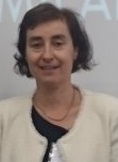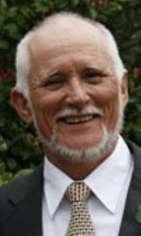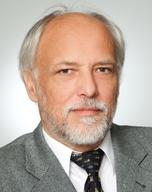Recent Events
Elisabete Martins
Networks
The Virtual Center for Supernetworks
The Virtual Center for Supernetworks at the Isenberg School of Management, under the directorship of Anna Nagurney, the John F. Smith Memorial Professor, is an interdisciplinary center established to:
- stimulate activities related to supernetworks
- explore applications of supernetworks
- bring together faculty, students, and those in industry and government for education and collaboration
- expand the knowledge base of network research
- disseminate information concerning networks and their roles in today's Information Age and Network Economy.
Mission: The mission of the Virtual Center for Supernetworks is to foster the study and application of supernetworks and to serve as a resource to academia, industry, and government on networks ranging from transportation, logistical, and telecommunication networks to economic, environmental, financial, and social networks.
The applications of Supernetworks include: transportation, logistics, critical infrastructure, telecommunications, electronic commerce, supply chain management, environment, economics, finance, and decision-making.
Funding for the Center has been provided by: The National Science Foundation The AT&T Foundation The John F. Smith Memorial Fund of the University of Massachusetts.
CHI Research, Inc.
CHI Research, Inc. announces the availability of its Regional Tech-Line Patent Profiles covering technology trends through 2001 for US metropolitan areas (available now), US states, and countries (both scheduled to be released during April). They provide technology indicators based on US patents granted in the last ten years to inventors residing in those regions.
Researchers can compare regions by technological strength and impact, and identify technology hot spots, areas where the technology base is growing fast or with a shrinking commitment to technology, technologies where regional companies are innovating quickly, and the contribution that science makes to technological development in a city, state, or country.
Indicators include number of patents, growth in patenting, technology distribution, patent impact (Current Impact Index [CII]), technological strength, speed of innovation (Technology Cycle Time [TCT]), importance to subsequent technology (cites received per patent), linkage to science, and science strength.
CHI Research is an internationally recognized research consultancy specializing in the development and analysis of technology and science indicators. CHI's indicators are used by corporate and public clients throughout the world. For more information about Regional Tech-Line, custom data extractions, or CHI and its services and products contact: e-mail: This email address is being protected from spambots. You need JavaScript enabled to view it., phone: (856)546-0600, or fax: (856)546-9633. Address: CHI Research Inc., 10 White Horse Pike, Haddon Heights, NJ 08035
Interventions vs. Market Approaches
We are pleased to present the third issue of PLANNING & MARKETS, a wholly electronic, fully refereed journal published on the World Wide Web. Go to: http://www-pam.usc.edu/
PLANNING & MARKETS is devoted to the study of planned interventions in social and economic processes versus market approaches. Dramatic advances in communications technologies have speeded information exchange almost everywhere. Refereed research in the social sciences and related policy fields are no exception.
Planning & Markets is the first academic journal in its field to be edited, refereed, and published exclusively using the Internet and World Wide Web.
Last years premier issue of PLANNING & MARKETS is archived and accessible at the same address.
Email subscriptions to PLANNING & MARKETS are free. Web visitors can subscribe directly from the PLANNING & MARKETS Web site.
For more information, please contact one of the Co-editors: This email address is being protected from spambots. You need JavaScript enabled to view it., Jim Moore, This email address is being protected from spambots. You need JavaScript enabled to view it.
RePEc Working Papers Database
RePEc stands for Research Papers in Economics, and is a vast collection of working papers, articles and software components contributed by over 80 archives. Among them are the NBER, the CEPR, all US Federal Reserve Banks, EconWPA, and many other academic and professional institutions. Currently, about 57000 working papers, 10000 articles and 300 software components are classified. Over 14000 items are available online in full text.
This tremendous database is accessible for free through several services. Two of them are IDEAS and NEP. IDEAS allows users to browse through all paper descriptions by series or JEL classification, search by keywords and access the available full texts.
At NEP, you may subscribe to email reports with abstracts and download details of all new additions to RePEc. There are over 40 field-specific mailing lists to choose from. Click here for other services using subsets of the database are also available and are described.
You are invited to explore these free services. If your institution does not yet contribute to RePEc, we also invite you to participate. Click here for details. Contributions are also free. Journals are welcome to join, too.
The Web Book of Regional Science
Web Book of Regional Science is a peer-reviewed and edited on-line collection of learning materials developed for upper-division undergraduates and graduate students taking courses related to regional science. Contributions are typically shorter than a book but longer than a journal article. An on-line pop-up glossary allows the reader to see terms defined without leaving the text. Hot links allow readers to view related resources while studying The Web Book of Regional Science. A diverse set of contributions makes it easy for instructors to pick a subset of materials that best fits their students. Contributions fall into two major categories: policy/practice and theoretical/empirical. To propose a contribution, contact, This email address is being protected from spambots. You need JavaScript enabled to view it., director of the Regional Research Institute, West Virginia University.
EconData.Net
EconData.Net is a Web site with links to over 125 on-line sources of regional socioeconomic data. Although the Web offers a substantial, and ever-increasing, amount of economic data on-line, it has been difficult to know what data are available and how to find them. To aid development practitioners and researchers in their search for on-line data, EconData.Net provides links to over 125 public, university, and private sources of regional socioeconomic data. Access to on-line data is provided to the various series profiled in the User's Guide as well as many others. Over the next few months, the site's listings will be further expanded and its format given a new look. EconData.Net is funded by the Economic Development Administration of the U.S. Department of Commerce. Direct questions or comments to This email address is being protected from spambots. You need JavaScript enabled to view it. or This email address is being protected from spambots. You need JavaScript enabled to view it..
Other Useful Data and Resource Links
RSAI Founder's Medal
|
2024
Jacques Thisse |
||||
|
2020 Geoffrey Hewings
|
2016 Manfred Fischer |
2012 Arthur Getis (deceased, 2022) |
2008 Antoine Bailly (deceased, 2021) |
2004 Peter Nijkamp
|
|
2000 David E. Boyce
|
1996 Jean H. P. Paelinck
|
1991 William Alonso (deceased, 1999) |
1983 Martin J. Beckmann (deceased, 2017) |
1978 Walter Isard (deceased, 2010) |
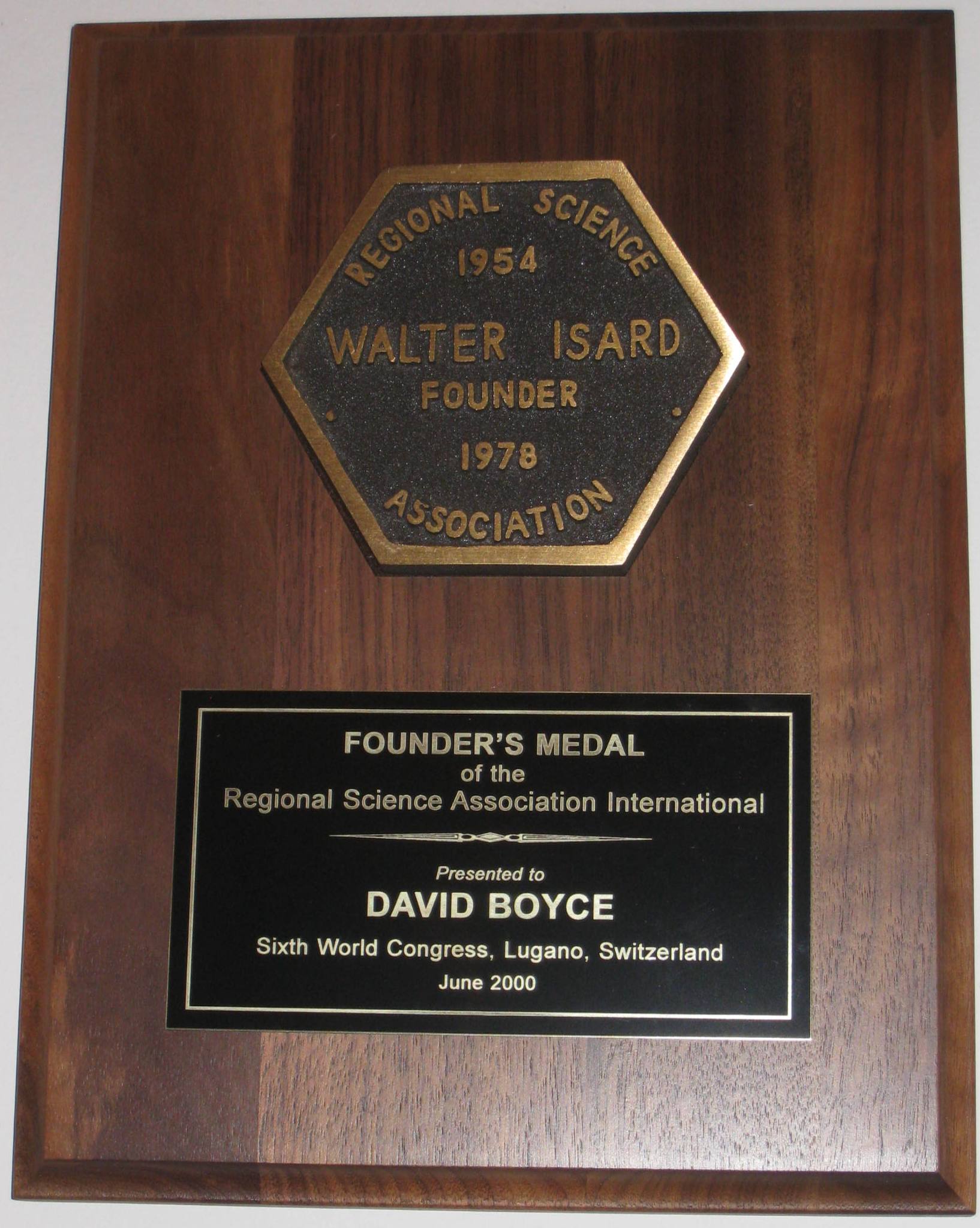 The Regional Science Association was founded in 1954 to provide intellectual leadership in the study of social, economic, political and behavioural phenomena with a spatial dimension. Consequently, the Association brings together scholars from a large number of fields, including economics, geography, urban and regional planning, civil engineering, sociology, finance and political science. Members are found in academic institutions, in government, in consulting organizations and a variety of private firms. In 1990, the Association changed its organizational structure to better reflect the growth and development of the field; the Regional Science Association International now serves as an umbrella organization overseeing three major superregional organizations in North America, Europe and the Pacific.
The Regional Science Association was founded in 1954 to provide intellectual leadership in the study of social, economic, political and behavioural phenomena with a spatial dimension. Consequently, the Association brings together scholars from a large number of fields, including economics, geography, urban and regional planning, civil engineering, sociology, finance and political science. Members are found in academic institutions, in government, in consulting organizations and a variety of private firms. In 1990, the Association changed its organizational structure to better reflect the growth and development of the field; the Regional Science Association International now serves as an umbrella organization overseeing three major superregional organizations in North America, Europe and the Pacific.
The main objectives of the Association are the fostering of exchange of ideas and the promotion of studies focusing on the region, including the utilization of tools, methods and theoretical frameworks, specifically designed for regional analysis as well as concept, procedures and analytical techniques of the various social and other sciences. These objectives are supported through the acquaintance and discussion among its members and with scholars in related fields, by the encouragement of publication of scholarly studies and by performing services to aid the advancement of its members and the field of regional science. For more information contact the This email address is being protected from spambots. You need JavaScript enabled to view it..
Traditionally, the RSAI honoured its leading members through their election to the office of President. This practice changed in 1990, when the President became principally a leadership position in the Association. In 1978, the Association honoured its founder, Professor Walter Isard, by establishing the Founder's Medal. Today, this award remains the only honour conveyed by the Association as a whole, although its three supraregional organizations have established annual awards.
The Founder's Medal was established to recognize lifetime contributions to the field of Regional Science and to the Association. The criteria established for the award are as follows:
- The recipient should be a senior scholar who has contributed in an important way to the field of Regional Science in a scholarly sense;
- The recipient should have been active in the RSAI for a sustained period, but not necessarily active at the time of the award; also, the award is not given posthumously;
- The recipient should be a person with whom many members can identify; his/her contributions could be a major work in one area or many works in several areas;
- The contribution need not be limited to one type of contribution; it might be theory, method or policy, for example;
- It is recognized that the native country and language of scholars affect the extent to which they are known by the membership, and an effort should be made to take this into account.
The recipients of the Founder's Medal:
- Walter Isard, Professor of Economics, Regional Science and Peace Science, University of Pennsylvania, Philadelphia, PA; in 1979, Professor Isard became Professor of Economics (Regional Science and Peace Science), Cornell University, Ithaca, NY, USA; awarded in 1978 at the North American Meetings, Chicago.
-
Martin J. Beckmann, Professor of Economics, Brown University, Providence, RI, USA, and Professor of Applied Mathematics (Operations Research), Technical University, Munich, Germany; awarded in 1983 at the North American Meetings, Chicago.
-
William Alonso, Saltonstall Professor of Population Policy, Center for Population Studies, Harvard University, Cambridge, MA, USA; awarded in 1991 at the North American Meetings, New Orleans (deceased, 1999).
-
Jean H. P. Paelinck, Professor Emeritus of Economics, Rotterdam School of Economics, Erasmus University, Rotterdam, the Netherlands; awarded in 1996 at the World Congress, Tokyo.
-
David E. Boyce, Professor of Transportation and Regional Science, University of Illinois at Chicago, Chicago, IL, USA; awarded in 2000 at the World Congress, Lugano.
-
Peter Nijkamp, Chair and Professor of Regional and Urban Economics and Economic Geography, Free University, Amsterdam, and President of the governing board of the Netherlands Research Council; awarded in 2004 at the World Congress, Port Elizabeth.
-
Antoine Bailly, Born in 1944, Antoine Bailly is professor emeritus of economic geography at the University of Geneva, Switzerland. He is the president of the IGU Applied Geography Commission, of the Scientific Committee of the INRA PSDR (France) and of the Forum Sante Gesundheit (Switzerland). He was presented with the Founder's medal at ERSA conference Liverpool, August 2008.
-
Arthur Getis is a Distinguished Professor of Geography, Emeritus, at San Diego State University. He holds BS and MS degrees in Geography from The Pennsylvania State University and a Ph.D. in Geography from the University of Washington, and his areas of research include spatial statistics, pattern analysis, urban geography, disease and crime clustering, and geographic information sciences. He was presented with the Founder's medal at the 9th World Congress in Timisoara, Romania, May 2012.
-
Manfred M. Fischer is Chair Professor of Economic Geography at the Vienna University of Economics and Business. He was co-founder of the prominent interdisciplinary journal Geographical Systems (Gordon & Breach) and is now editor-in-chief of its successor, the Journal of Geographical Systems (Springer), and is a member of the editorial boards of several other peer-reviewed journals. He also co-founded the Springer book series, Advances in Spatial Science, and served for eight years as Chair of the IGU Commission on Mathematical Models. He was presented with the Founder's medal at the 56th ERSA Congress in Vienna, Austria, August 2016.
-
Geoffrey Hewings was the founding Director of REAL and served in this position until August 2016. He obtained a B.A. from the University of Birmingham (UK) and an M.A. and a Ph.D. from the University of Washington (Seattle). Prior to coming to Illinois in 1974, he was on the faculty of the University of Kent at Canterbury (UK) and the University of Toronto (Canada). He is also a recipient of the Fulbright and the Woodrow Wilson awards and, in 2003, he has also been nominated Fellow of the Regional Science Association International. He is also Fellow of the International Input-Output Association (since 2010) and the Western Regional Science Association (also since 2010). Geoffrey has also served as President of the North American Regional Science Council, the Regional Science Association. He was presented with the Founder's medal in 2020.
- Jacques Thisse a Fellow of the Econometric Society, of the Regional Science Association International and of the Centre for Economic Policy Research, is professor Emeritus of economics and regional science at the Université catholique de Louvain (Belgium) and a member of CORE. He has published over 150 articles in different international journals (Econometrica, American Economic Review, Journal of Economic Theory, Operations Research, etc) and in different disciplines such as industrial economics, spatial economics, international economics and management science. He is the co-author of Discrete Choice Theory of Product differentiation and of Economics of Agglomeration. He is particularly interested in product differentiation, heterogeneous consumers and firms in various types of market structure and spatial settings, as well as in the spatial organization of economic activities. He has been a Visiting Invited Professor in many departments, most recently at Columbia economics department and has received many prestigious awards, amongst which the Solvay price of the Belgian Science foundation in 2006.
Other Journals
RSPP
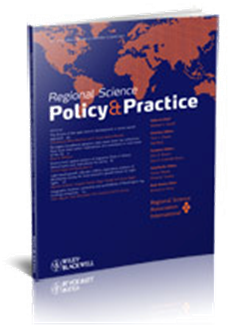
Regional Science Policy & Practice (RSPP) is an open access journal published by Elsevier on behalf of the RSAI. Although RSPP charges Article Processing Charges (APCs), Elsevier has signed agreements with many countries and universities that allow papers to be fully or partially free of APCs (Please check here your situation). Nevertheless, the Editorial Team of RSPP can allocate waivers or provide some support to authors to secure the publication of accepted papers that fit into Special Issues and do not have enough funding. This situation must be addressed when submitting the paper. To access Regional Science Policy & Practice visit https://www.sciencedirect.com/journal/regional-science-policy-and-practice Our journals are now both publushed Gold Open Access with Elsevier; APCs are USD 2740 for PiRS and USD 1596 for RSPP. However:
Journal Impact Factor™ of 2.1Scopus 2024 CiteScore: 3.7 Scopus Citescore Category Rankings 2024:
- Geography, Planning and Development - 263/841
- Development - 97/309
- Management, Monitoring, Policy and Law - 190/406
|
|
||||||
Aims and Scope
Regional Science Policy and Practice (RSPP) is the journal of the Regional Science Association International that publish high quality papers in regional science, assumed to be the discipline that looks at people’s and places interaction within space; with sound, replicable and advanced methods; suitable to generate robust evidences that are able to inform effective policies for regional sustainable development. It welcomes papers from a range of academic disciplines and practitioners including planning, public policy, geography, economics and environmental science and related fields. Papers should address the interface between academic debates and policy development and application. RSPP provides an opportunity for academics and policy makers to develop a dialogue to identify and explore many of the challenges facing local and regional economies.
RSPP publishes high quality papers targeted at informing the policy development process leading to the formation of theoretically grounded regional policy. The editors invite submissions dealing with the policy and practice of regional and local development. Contributions that are the outcome of collaborations between researchers and policy and practice professions are encouraged.
Keywords
regional, science, policy, practice, RSAI, journal, geography, applied, local development, planning, public policy, economics, environmental science
Abstracting and Indexing Information
- Academic OneFile (GALE Cengage)
- Emerging Sources Citation Index (Clarivate Analytics)
- Environment Abstracts (ProQuest)
- Environmental Sciences & Pollution Management (ProQuest)
- InfoTrac (GALE Cengage)
- Political Science Complete (EBSCO Publishing)
- SCOPUS (Elsevier)
- Sustainability Science Abstracts (ProQuest)
- Web of Science (Clarivate Analytics)
Please note: Members of the Regional Science Association International are eligible for a 20% discount on the article publishing charge.
PiRS
Papers in Regional Science (PiRS) is published by Elsevier on behalf of the RSAI. To access Papers in Regional Science visit https://www.sciencedirect.com/journal/papers-in-regional-science
Our journals are now both published Gold Open Access with Elsevier; APCs are USD 2740 for PiRS and USD 1596 for RSPP.
However:
- Selected Countries, beneficiaries of the Research4Life program, are eligible for a 100% or a 50% discount on APCs;
- Authors from entities with an institutional agreement with Elsevier do not pay APCs;
- PiRS' editorial team has 20 waivers, and RSPP's has 50 waivers, to allocate each year for accepted articles based on the decision of the EiCs, and the merits of each paper;
- If none of the former applies, RSAI members are in any case eligible for a 20% discount on APCs.
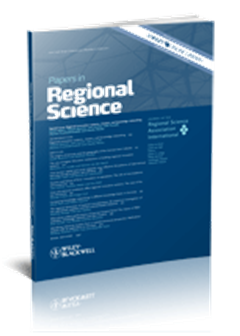 Aims and Scope
Aims and Scope
Papers in Regional Science is the official journal of the Regional Science Association International. It encourages high quality scholarship on a broad range of topics in the field of regional science. These topics include, but are not limited to, behavioural modelling of location, transportation, and migration decisions, land use and urban development, inter-industry analysis, environmental and ecological analysis, resource management, urban and regional policy analysis, geographical information systems, and spatial statistics.
The journal publishes papers that make a new contribution to the theory, methods and models related to urban and regional (or spatial) matters. The editors invite submissions of papers that emphasize the application of theoretical frameworks, methods and models, developed specifically for the study of urban and regional phenomena. They also welcome contributions to the understanding of regional phenomena that employ theoretical frameworks and methods developed in other fields.
Key words
papers, regional, science, RSAI, journal, geography, location, transportation, migration, urban, development, environment, policy, spatial, resource management
Abstracting and Indexing Information
- Academic Search (EBSCO Publishing)
- Academic Search Premier (EBSCO Publishing)
- AgeLine Database (EBSCO Publishing)
- Current Contents: Social & Behavioral Sciences (Thomson Reuters)
- EconLit (AEA)
- GEOBASE (Elsevier)
- IBSS: International Bibliography of the Social Sciences (ProQuest)
- Journal Citation Reports/Social Science Edition (Thomson Reuters)
- RePEc: Research Papers in Economics
- SCOPUS (Elsevier)
- Social Sciences Citation Index (Thomson Reuters)
Please note: Members of the Regional Science Association International are eligible for a 20% discount on the article publishing charge.
RSAI Fellows
2026 RSAI Fellows
DEADLINE to RECEIVE NOMINATIONS: April 15, 2026
2025 |
|||
 Bucharest University of Economic Studies, Romania
|
 University of Illinois Urbana-Champaign, USA
|
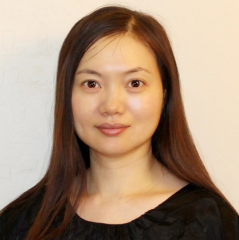 School of Geographical Sciences and Urban Planning at Arizona State University, USA
|
 KTH Royal Institute of Technology, Stockholm; Jönköping International Business School, Jönköping, Sweden
|
2024 |
|||
 University of Tsukuba, Japan
|
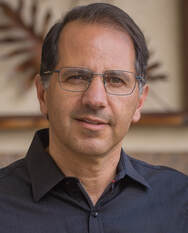 University of São Paulo, Brazil
|
 Politecnico di Milano, Italy
|
|
2023 |
|||
 University of Sao Paulo, BRAZIL
|
 Géographie-cités, FRANCE
|
 University of Groningen, THE NETHERLANDS
|
|
2022 |
|||
 University Paris-Saclay, FRANCE
|
 Australian National University, AUSTRALIA
|

Erasmus University Rotterdam, THE NETHERLANDS
|
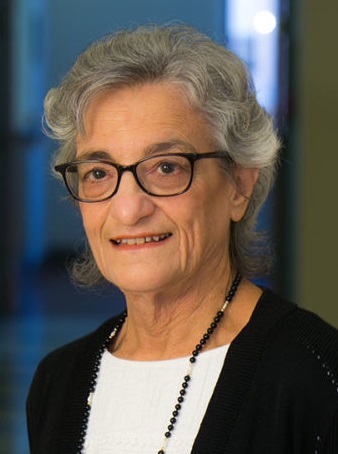 University of Southern California, USA
|
2021 |
|||
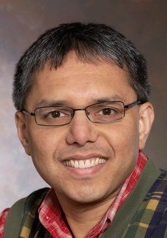 Rochester Institute of Technology, USA
|
 Gran Sasso Science Institute (GSSI), ITALY
|
 West Virginia University, USA
|
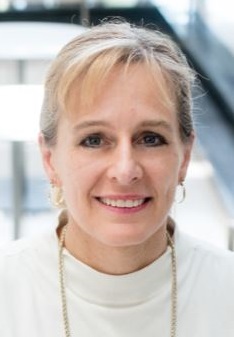 University of Texas at Austin, USA
|
2020 |
|||
 University of Groningen, THE NETHERLANDS
|
 University of Alcalà, SPAIN
|
||
2019 |
|||
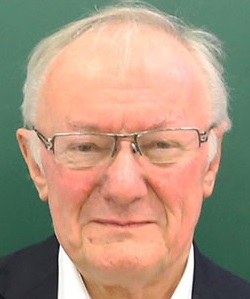 University College London, UK
|
 University of Maryland, USA
|
 Université catholique de Louvain, Belgium
|
|
2018 |
|||
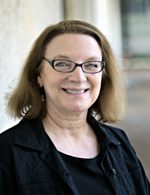 University of Houston, USA
|
 University of California at Santa Barbara, USA
|
 Oklahoma State University, USA
|
 London School of Economics, UK
|
2017 |
|||
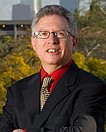 University of Southern California, USA
|
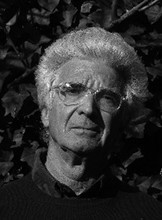 Roberto Camagni (deceased, 2023)
Politecnico di Milano, Italy |
 University of Southern California, USA
|
|
2016 |
|||
 University of Groningen, THE NETHERLANDS
|
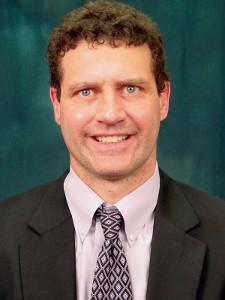 The Ohio State University, USA
|
 Arizona State University, USA
|
|
2015 |
|||
 Cornell University, USA
|
Raymond J.G.M. Florax (deceased, 2017)
Purdue University, USA
|
 University of Waikato, NEW ZEALAND
|
|
2014 |
|||
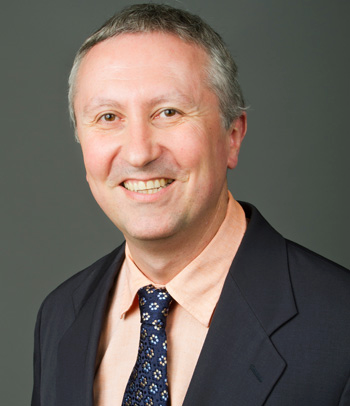 University of Pennsylvania, USA
|
 University of Toronto, Canada
|
|
|
2013 |
|||
|
Polytechnic Milano, ITALY
|
Kyoto University, JAPAN
|
Tönu Puu (deceased, 2020)
University of Umeå, SWEDEN
|
University of North Carolina at Charlotte, USA
|
2012 |
|||
|
Brian J.L. Berry (deceased, 2025)
The University of Texas at Dallas, USA
|
Ronald E. Miller (deceased, 2023)
University of Pennsylvania, USA
|
Syracuse University, USA
|
 Stockholm University, SWEDEN
|
2011 |
|||
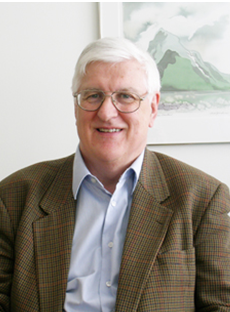
Åke E. Anderson (deceased, 2021)
Jönköping International Business School, SWEDEN
|
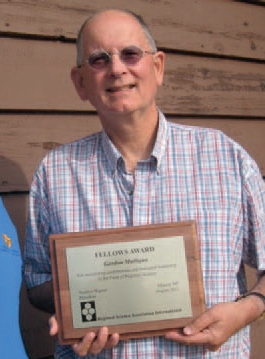
Gordon Mulligan (deceased, 2023)
University of Arizona, USA
|
||
2010 |
|||
|
Princeton University, USA
|
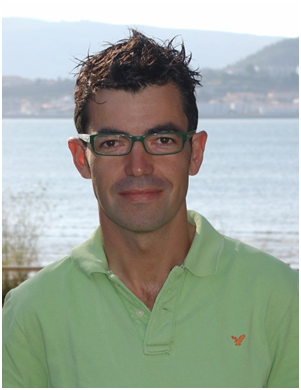 Madrid Institute for Advanced Studies, SPAIN
|
University of Bologna, ITALY
|
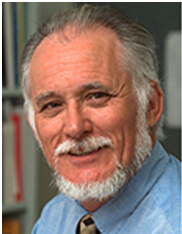 University of Queensland, AUSTRALIA
|
|
Federal Reserve Bank of Philadelphia, USA
|
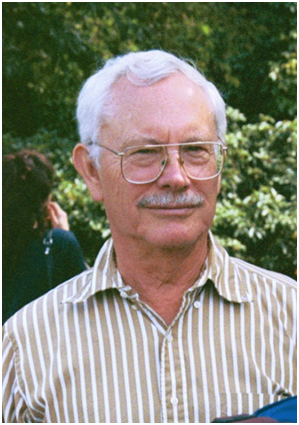
Richard Morrill (deceased, 2024)
University of Washington, USA
|
Michael Sonis (deceased, 2016)
Bar-Ilan University, ISRAEL
|
 University of Arizona, USA
|
|
VU University Amsterdam, THE NETHERLANDS
|
Wageningen and Groningen Universities, THE NETHERLANDS
|
|
|
2009 |
|||
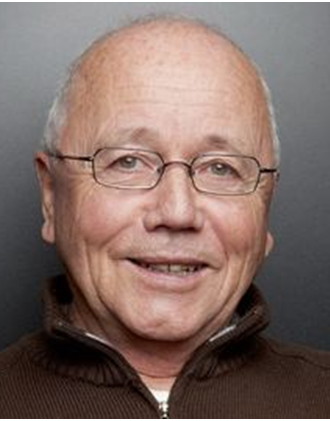 Antoine Bailly (deceased, 2021)
University of Geneva, SWITZERLAND
|
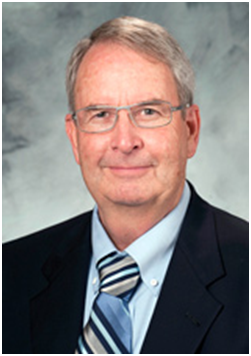 University of California, Santa Barbara, USA
|
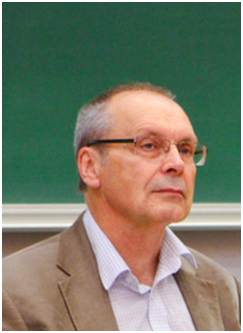 University of Strathclyde, UK
|
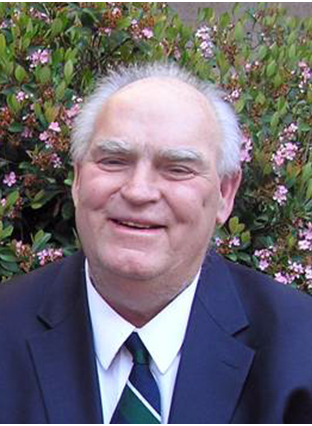 Reginald Golledge (deceased, 2009)
University of California, Santa Barbara, USA
|
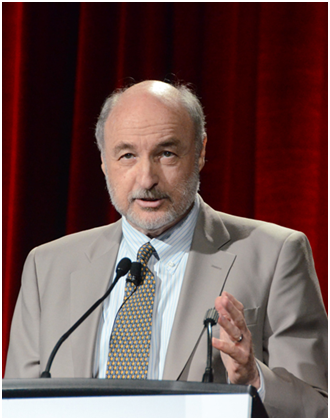 University of Southern California, USA
|
 University of Texas at Dallas, USA
|
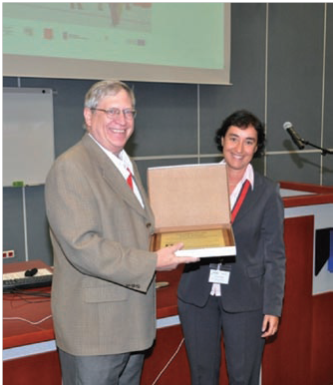 Florida State University, USA
|
 Texas State University, USA
|
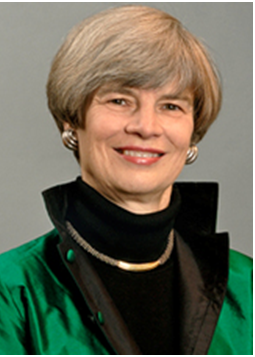 University of Pennsylvania, USA
|
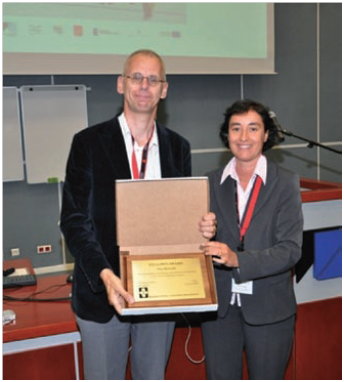 Piet Rietveld (deceased, 2013)
VU University Amsterdam, THE NETHERLANDS
|
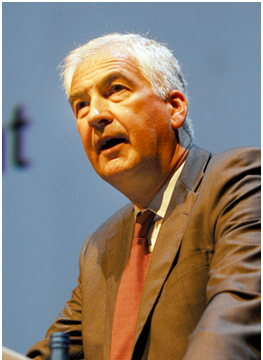 University of Oxford, UK
|
|
2008 |
|||
 T.R. Lakshmanan (deceased, 2020)
Boston University, USA
|
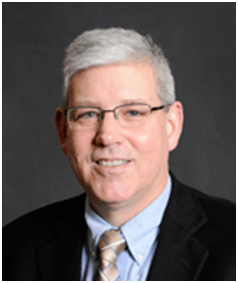 University of Illinois at Chicago, USA
|
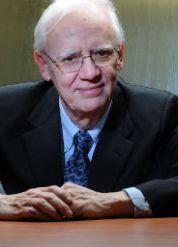 University of Illinois at Chicago, USA
|
University of Groningen, THE NETHERLANDS
|
 Harry W. Richardson
University of Southern California, USA
|
 Roger Stough (deceased, 2019)
George Mason University, USA
|
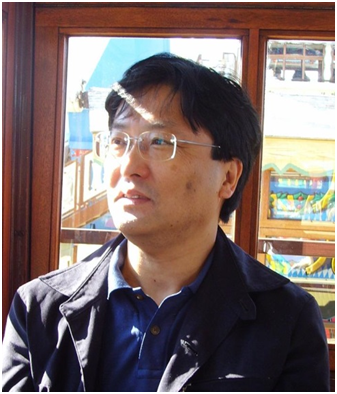 University of Tokyo, JAPAN
|
|
2007 |
|||
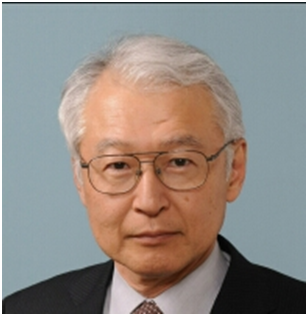 University of Tokyo, JAPAN
|
 Harry H. Kelejian (deceased, 2024)
University of Maryland, USA
|
 University of Massachusetts, USA
|
 McMaster University, CANADA
|
 University College London, England, UK
|
|
|
|
2006 |
|||
 SUNY Buffalo, USA
|
 Richard Arnott (deceased, 2023)
Boston College, USA
|
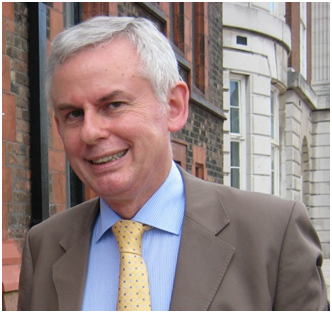 University of Liverpool, UK
|
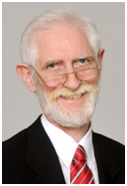 WU Wien, Vienna, AUSTRIA
|
 University of Colorado, Boulder, USA
|
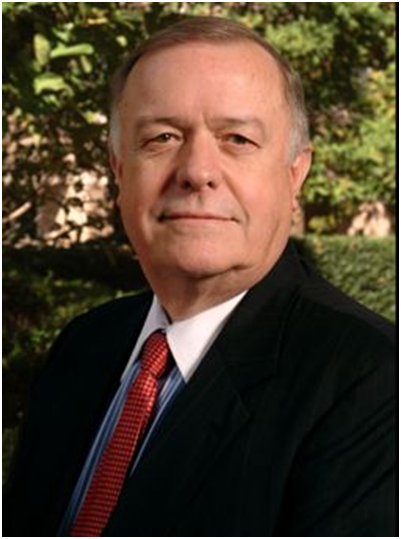 George Mason University, USA
|
 University of Illinois, USA
|
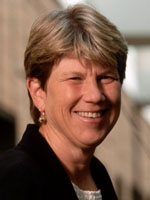 University of Minnesota, USA
|
 John Parr (deceased, 2023)
University of Glasgow, Scotland, UK
|
 University of California, Irvine, USA
|
|
|
2005 |
|||
|
Washington University in Saint Louis, USA
|
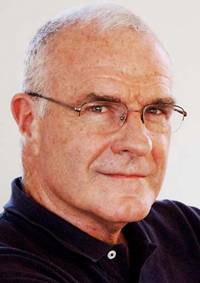 University of California, Irvine, USA
|
 Arthur Getis (deceased, 2022)
San Diego State University, USA
|
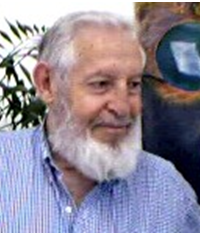 Tel-Aviv University, ISRAEL
|
 Massachusetts Institute of Technology, USA
|
|
|
|
2004 |
|||
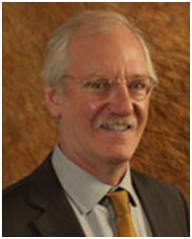 University of Illinois at Urbana-Champaign, USA
|
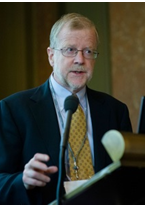 Brown University, USA
|
 Erasmus University, NETHERLANDS
|
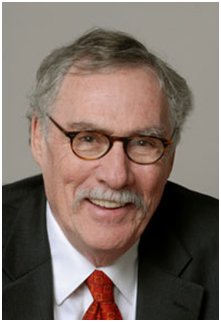 John M. Quigley (deceased, 2012)
University of California, Berkeley, USA
|
2003 |
|||
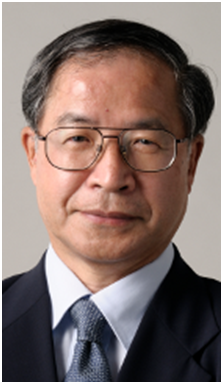 Kyoto University, JAPAN
|
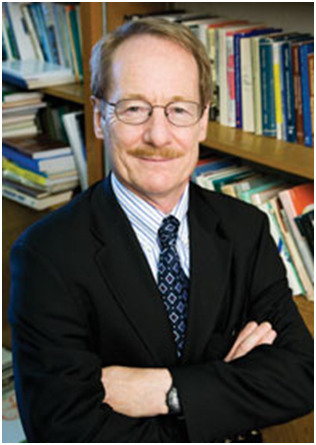 University of Illinois at Urbana-Champaign, USA
|
 University of Pennsylvania, USA
|
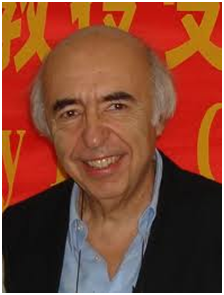 Catholic University of Louvain, BELGIUM
|
2002 |
|||
|
RSAI Council initiated the RSAI Fellows Award to honour a select group of members of the Association who have made important scholarly and research contributions to the field of regional science. The inaugural Fellows were the living recipients of the Founder's Medal at that time |
|||
 Walter Isard (deceased, 2010)
Cornell University, USA
|
 Martin Beckmann (deceased, 2017)
Brown University, USA and Technical University of Munich, Germany
|
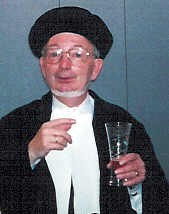 Jean Paelinck (deceased, 2025)
Erasmus University, NETHERLANDS
|
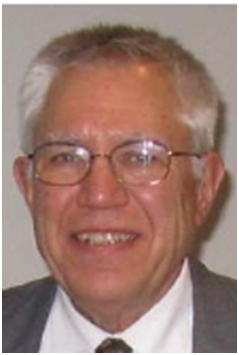 Northwestern University, USA
|
RSAI Fellows
RSAI fellows are distinguished scholars with a proven and recognized research record in the field of regional science during a considerable part of their scientific career. Such honoured members of the RSAI are appointed after a careful nomination and selection procedure, based on a broad consultation of the RSAI membership.
The RSAI fellowship is a world-wide sign of scientific recognition that is bestowed on a regional scientist with outstanding research credentials in his/her field. The RSAI fellowship does not imply any obligation to the Association, although it is expected that fellows on a voluntary basis will serve the scientific objectives of the RSAI whenever possible or appropriate.
Regional science has witnessed a great increase in scholarly interest and scientific publications all over the world. To create a vital Association, it is therefore critical that senior members - and, in particular, RSAI fellows – act as a role model, in particular for a younger generation. The RSAI membership should have the highest expectations on – and appreciation for – its fellows, given their past seminal research contributions.
RSAI fellows may contribute to the fulfillment of the goals of the Association by offering a scientific service or incentive to its members through various means, such as:
- Organization of a fellows’ meeting at any conference venue, where a major RSAI conference is taking place (ERSA, NARSC, PRSCO, World Conference). This could be a socializing meeting (e.g., a luncheon or late afternoon drinks) or a substantive meeting (e.g., an exploratory venue addressing future research strategies or topics).
- Organization of dedicated panels or focused fellows’ sessions at any major international or supraregional RSAI meeting with the aim to reflect on new methodologies or promising approaches in research.
- Organization of early-bird (breakfast) meetings, luncheon meetings or late afternoon drinks meetings with a small group of young researchers, based on an open subscription/application system, in which informal presentations (5-10 minutes) are held by young researchers (‘meet the professor’ meetings).
- Organization of a solid pre-conference special session at any major RSAI conference, with a balanced mix of seniors (in particular, RSAI fellows) and juniors (‘rising stars’), where fellows and rising stars present recent research work (in the long run, even joint senior-junior research work could be foreseen).
- Organization of short ‘next gen’ training courses, prior to any major conference.
- Organization of a voluntary ‘Foster Fellow Plan’, in which an RSAI fellow is willing to adopt for a period of (e.g.) one year a selected young researcher from a different country –in consultation with his/her supervisor – with the aim to provide network contacts or scientific guidance, or perhaps to start a joint research project.
- Organization of an RSAI column by a fellow in any issue of the RSAI Newsletter (after consultation of the Newsletter editors).
Any meeting or panel at conferences needs to be done in consultation with the conference organizers.
Limit on the Number of Fellows
- An upper limit on the number of fellows is set at 5% of the membership of RSAI.
- Fellows who are deceased are not counted in the upper limit on the number of fellows set out in 1 above.
Nomination and Selection Protocol of RSAI Fellows:
- Each RSAI member - except RSAI fellows – is entitled to nominate candidates for the RSAI fellowship, but self-nominations are not allowed. Each nomination has to be done through a standard concise nomination form that follows a systematic template (See below the “Standard Nomination Form for RSAI Fellows”. Nominations with additional attachments, as for instance the CV of the nominee, will be rejected).
- A nominee has to be RSAI member (or a member of any section recognized by the RSAI) and to meet the qualifications mentioned in Annex A.
- To be eligible, a nominee has to: i) be RSAI member (or a member of any section recognized by the RSAI) at the moment of the nomination; ii) having a long established membership; and iii) showing a strong commitment with the Association in order to be able to serve RSAI in the expected way described above.
- The selection of new RSAI fellows takes place only once a year, but nominations can be sent in at any time and will be considered for a given selection round, if they have been received before a given deadline. A nomination has a maximum life of two years.
- All nominations will be put on a list supplemented with non-elected candidates for the RSAI fellowship who were on the short list from the previous year.
- The short list will be screened by the RSAI fellows selection committee (in consultation with the RSAI President and Executive Director). This committee comprises 3 RSAI fellows appointed by the RSAI Council for a period of staggered 3-year terms. The President and Executive Director will make the nominations for Council’s consideration unless Council sets up a special committee that handles this nomination process.The selection committee has to seriously consider all available information on the candidates and remove candidates (unanimous vote) who do not qualify according to the eligibility requirements and the expected profile described above.
- The selection committee can also decide to reduce the list of nominated RSAI members to a manageable number, so that candidates can be selected with a qualified majority. This short list should normally not contain more than 10 to 12 names and no fewer than 8 names (unless the number of nominations is fewer than eight).
- The short list is next circulated to all RSAI fellows, who have the exclusive right to vote for (a maximum of) 3 candidate-fellows. No ranking of candidates is allowed.
- The only upper ceiling that may be imposed on the number of candidates in a given year is a number that would result in exceeding the limit on the total number of Fellows permitted as a percentage of the membership of RSAI.
- A vote of at least 1/3 will normally mean election, unless that would exceed the ceiling referred to in #8 above.
- The selection committee informs the RSAI Director of the final selection results, who will communicate these results to the selected RSAI fellows, the RSAI Council, and the home institutions of the newly appointed fellows.
Standard Nomination Form for RSAI Fellows:
- Factual bio-data on candidate, including a proof for RSAI membership
- Professional career of candidate (max. 100 words)
- Substantive contribution to regional science (max. 200 words)
- Path-breaking publications on regional science (max. 5)
- Signs of international scientific recognition (max. 50 words)
- Reasons for nominating the candidate (max. 50 words)
To ensure full consideration by the committee, these materials should be provided in electronic format (pdf preferred) by April 15 of each year.
Submit nominations by April 15, 2026 to: Ana Vinuela, RSAI Executive Director (This email address is being protected from spambots. You need JavaScript enabled to view it.)
RSAI Dissertation Award
2025 RSAI Best Dissertation in Regional Science
Call for submissions
Deadline for the applications: August 31, 2025
The Regional Science Association International (RSAI) invites submissions for the annual competition for the Best Doctoral Dissertation in Regional Science. Regional science is an interdisciplinary field concerned with theory, method, and application of regional, urban and rural, geographic and spatial investigations and analyses.
The winner will be decided by the Selection Committee and will receive a cash award of 750 Euros. Award announcements will be made at the North American Meetings of the RSAI, where participants in the competition are strongly encouraged to be present. The Selection Committee reserves the right to not make an award. Decisions made by the Selection Committee are final.
Eligibility:
- A dissertation completed in any PhD program in any country is eligible,
- A dissertation written in English,
- A dissertation successfully defended, with official graduation date between July 1st 2024 and June 30th 2025,
- A dissertation on a single or multiple general regional science topics. The Selection Committee reserves the right to determine whether a dissertation is relevant to the field of regional science.
Application (in either PDF or MS Word format):
- A two-page curriculum vita;
- A letter of support and nomination from the major professor (also known as a dissertation committee chairperson or supervisor) on stationary paper and with signature. The letter should clearly explain the dissertation’s originality and contributions to the field of regional science;
- The dissertation.
Applications should be submitted electrically by August 31, 2025, to the Chair of the Selection Committee, Dimitris Ballas (This email address is being protected from spambots. You need JavaScript enabled to view it.). Large submissions can be uploaded to a cloud file-sharing site. Questions regarding the dissertation competition may be sent to him too.
Winners
2024 |
2023 |
|||||||||
|
The dissertation presents a novel conceptual and methodological approach to the analysis of perceived accessibility and it shows that a lower provision of services and amenities in rural areas does not necessarily translate to lower levels of perceived accessibility compared to urban areas. The research employs both quantitative and qualitative methods to examine perceived accessibility to daily activities in rural areas in the Netherlands, contributing to the normative evaluation of spatial inequalities in accessibility. The PhD dissertation includes chapters that are already published in high quality peer-reviewed international journals, including highly cited articles in the Journal of Transport Geography. Dr Pot received his Doctorate from the University of Groningen on 7 September 2023 (https://research.rug.nl/en/publications/the-extra-mile-perceived-accessibility-in-rural-areas) and was supervised by Prof Taede Tillema and Prof Sierdjan Koster. Congratulations! |
The cum laude distinction (only given to around 5% of all PhD students at Wageningen University) was awarded by an extended evaluation committee of nine persons. Dr Tian’s PhD dissertation made significant contributions towards the knowledge of urbanization and environmental changes at the global scale. The thesis included highly innovative methodological features such as the use of multi-source (and high quality) Earth Observation data and social data, contributing to academic and policy knowledge relating to global urbanization and sustainability as well as their nexus at the neighbourhood level. Part of the thesis has already been published in the form of academic peer-reviewed papers in the journals Landscape and Urban Planning (2022) and Environmental Research Letters (2022). The RSAI congratulates Dr. Tian and her supervisors Professor Martin Herold and Professor Eveline van Leeuwen (Wageningen University). |
|||||||||
2022 |
|
|
|
|
|
|
|
|
|
2021 |
|
This thesis has already been published in the form of four academic peer-reviewed papers in the Journal of Regional Science (2021), Geographical Analysis (2021) and the Journal of Geographical Systems (2020 and 2022). It was also unanimously awarded the cum laude (honours) distinction (for outstanding ability to conduct independent research) by the assessment and review committee (comprising Professors P. McCann, R. Bivand, A. Anshory Yusuf,J. LeSage, M. Fischer) as well as the Tiebout Price of the Western Regional Science Association in 2019. The RSAI congratulates Dr. Jaya and his supervisors, Prof. L.J.G. van Wissen and Prof. H. Folmer (Groningen University). |
|
|||||||||
2020 |
|
|
|
|
|
|
|
|
|
2019 |
|
|
|
|||||||||
2018 |
|
|
|
|
|
|
|
|
|
2017 |
|
|
|
|||||||||
2016 |
|
|
|
|
|
|
|
|
|
2015 |
|
|
|
|||||||||
2014 |
|
|
|
|
|
|
|
|
|
2012 |
|
|
|
|||||||||
2011 |
|
|
|
|
|
|
|
|
|
2010 |
|
|
|
|||||||||
2008 |
|
|
|
|
|
|
|
|
|
2006 |
|
|
|
|||||||||
2005 |
|
|
|
|
|
|
|
|
|
2004 |
|
|
|
|||||||||
2003 |
|
|
|
|
|
|
|
|
|
2002 |
|
|
Adelheid Holl received the 2002 dissertation competition award for her work entitled "Transport Infrastructure in Lagging European Regions." |
The Peter Nijkamp Research Encouragement Award
The Peter Nijkamp RSAI Research Encouragement Award for an Mid-Career Scholar from a Developing Country
DEADLINE to RECEIVE APPLICATIONS: November 30th 2025
Winners
2024 |
2022 |
2020 |
2017 |
2012 |
2011 |
||||||
 Universidade Federal de Minas Gerais, Brazil
|
 The Ecuador National Polytechnic School, Ecuado
|
 Capital University of Economics and Business, Bejing, China
|
 Universidad Catolica del Norte, Chile
|
 Peking University, China
|
 CEER - Banco de la Republica, Colombia
|
 Federal University of Juiz de Fora, Brazil
|
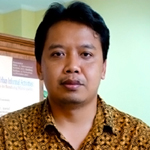 Padjadjaran University, Indonesia
|
||||
1. Goal
The Award recognizes the outstanding potential of a mid-career researcher from a nation in the developing world, and seeks to encourage his/her development as a high-quality researcher in the field of Regional Science and his/her participation in the international Regional Science community.
2. The Award and Eligibility
2.1 The Award is established to recognize and honour the contribution Professor Peter Nijkamp, a RSAI Fellow and an outstanding regional science researcher, has made to the encouragement and involvement of young scholars in Regional Science research and activities.
2.2 The Award recognizes the potential of outstanding scholarship in Regional Science in a mid-career researcher from and based in low and lower-middle income countries (See World Bank classification below).
2.3 This Award will use the country classification by the World Bank and will consider “developing countries” those that fall into the category of: “Low Income Country”, “Lower Middle Income Country” and “Upper Middle Income Country”. Nevertheless, in equal conditions, preference will be given to applicants from and based in low and lower-middle income countries".
2.4 Eligibility to apply for the Award is restricted to researchers:
- a) who has held their doctoral qualification for no more than ten (10) years as at the 31 December in the year in which they apply for the Award (i.e. mid-career researchers)
- b) from a developing country (as defined in 2.2), and
- c) in full time employment in either a teaching or a research position in a university or research institution based in a developing country (as defined above)
2.5 An applicant for the Award must be member of RSAI in good standing. Please contact your national section or RSAI (This email address is being protected from spambots. You need JavaScript enabled to view it.) in case you want to become a member.
2.6 The Jury of the Award will have to both evaluate:
a/ the research track record and performance of the applicant (as demonstrated in a full up-to-date Curriculum Vitae), and
b/ the quality of a written formal research paper on a topic in Regional Science (formatted in accordance with the requirements by Papers in Regional Science),
2.7 The winner of the Award will be able to attend one of the Supra-national RSAI Conferences (ERSA; PRSCO, NARSC) or the RSAI World Congress with the following costs being covered by RSAI (up to 750€): conference fees, transportation (with advanced purchase of flights) and accommodation during the conference. The winner will participate in the conference, present the submitted paper, and by then will have the paper submitted for review and potential publication in Papers in Regional Science. The winner of the Award will be granted with a certificate at the RSAI meeting that decides to attend
2.8 The award is individual (only one person awarded) but up to two (2) awards may be made in any one year. The eligibility criteria must be met by the researcher applying for the Award, but not for all the co-authors of the paper submitted.
3. Nomination Process
3.1 By April each year the Executive Director will contact members of RSAI and post on the RSAI website a notice calling for applications for the Peter Nijkamp RSAI Research Encouragement Award.
3.2 The eligible mid-career researcher must submit an electronic copy of:
a/ the up-to-date CV of the applicant for the award
b/ the research paper (formatted in accordance with the requirements for submitting a manuscript to Papers in Regional Science) and
c/ in case of multiple authors, a letter of acknowledgement from all authors specifying that i) they are aware of the application of (name of applicant) to the Peter Nijkamp Research Encouragement Award based on the paper (title of the paper); and ii) they agree with the paper being sent for consideration for publication in the RSAI Journal Papers in Regional Science.
to the RSAI Executive Secretary (This email address is being protected from spambots. You need JavaScript enabled to view it.) for consideration for the Award at any time up to the end of November.
4. Jury and Process for Recommending the Award
4.1 The Jury will be formed by the immediate past-President of RSAI (as Chair), an Editor of Papers in Regional Science, and two RSAI Fellows. The Jury needs to be approved by the RSAI Council
4.2 The RSAI Executive Director will forward the applicant’s documentation received to the members of the Jury and the Jury will convene (in person and/or by email/teleconference) after January 1st in the following calendar year and will evaluate the applications. Its recommendation(s) will be submitted to the RSAI Executive Director by the end of January in that year.
4.3 The RSAI Secretary will inform the winner(s) of the Award and make all the necessary arrangements for their travel (up to a limit of 750 €) to the RSAI World Congress or one Supranational Conference (ERSA, PRSCO, NARSC) at which the paper will be presented and where the winner will be publicly announced and granted with a certificate
4.4 The Award must be taken up and the winner(s) attend the conference nominated during the year that the Award is announced or the Award will lapse.
WORLD BANK CLASSIFICATION 2025
A. High Income Countries: Andorra; Antigua and Barbuda; Aruba; Australia; Austria; Bahamas, The; Bahrain; Barbados; Belgium; Bermuda; British Virgin Islands; Brunei Darussalam; Canada; Cayman Islands; Channel Islands; Chile; Croatia; Curaçao; Cyprus; Czech Republic; Denmark; Estonia; Faroe Islands; Finland; France; French Polynesia; Germany; Gibraltar; Greece; Greenland; Guam; Hong Kong SAR, China; Hungary; Iceland; Ireland; Isle of Man; Israel; Italy; Japan; Korea, Rep.; Kuwait; Latvia; Liechtenstein; Lithuania; Luxembourg; Macao SAR (China); Malta; Monaco; Netherlands; New Caledonia; New Zealand; Northern Mariana Islands; Norway; Oman; Palau; Panama; Poland; Portugal; Puerto Rico; Qatar; San Marino; Saudi Arabia, Seychelles, Singapore Sint Maarten (Dutch part); Slovak Republic; Slovenia; Spain; St. Kitts and Nevis; St. Martin (French part;) Sweden; Switzerland; Taiwan (China); Trinidad and Tobago; Turks and Caicos Islands; United Arab Emirates; United Kingdom; United States; Uruguay; Virgin Islands (U.S.).
B. Upper Middle Income Countries: Albania; Algeria; American Samoa; Argentina; Armenia; Azerbaijan; Belarus; Belize; Bosnia and Herzegovina; Botswana; Brazil; Bulgaria; China; Colombia; Costa Rica; Cuba; Dominica; Dominican Republic; Ecuador; Equatorial Guinea; Fiji; Gabon; Georgia; Grenada; Guatemala; Guyana; Iran, Islamic Rep.; Iraq; Jamaica; Jordan; Kazakhstan; Kosovo; Lebanon; Libya; Malaysia; Maldives; Marshall Islands; Mauritius; Mexico; Montenegro; Namibia; Nauru; North Macedonia; Paraguay; Peru; Romania; Russian Federation; Samoa; Serbia; South Africa; Sri Lanka; St. Lucia; St. Vincent and the Grenadines; Suriname; Thailand; Tonga; Turkey; Turkmenistan; Tuvalu; Venezuela, RB.
C. Lower Middle and Low Income Countries: Angola; Bangladesh; Bhutan; Bolivia; Cabo Verde; Cambodia; Cameroon; Comoros; Congo, Rep.; Côte d'Ivoire; Djibouti; Egypt, Arab Rep.; El Salvador; Eswatini; Ghana; Honduras; India; Indonesia; Kenya; Kiribati; Kyrgyz Republic; Lao PDR; Lesotho; Mauritania; Micronesia, Fed. Sts.; Moldova; Mongolia; Morocco; Myanmar; Nicaragua; Nigeria; Pakistan; Papua New Guinea; Philippines; São Tomé and Principe; Senegal; Solomon Islands; Sudan; Timor-Leste; Tunisia; Ukraine; Uzbekistan; Vanuatu; Vietnam; West Bank and Gaza; Zambia; Zimbabwe; and Low Income Countries: Afghanistan; Benin; Burkina Faso; Burundi; Central African Republic; Chad; Congo, Dem. Rep.; Eritrea; Ethiopia; Gambia, The; Guinea; Guinea-Bissau; Haiti; Korea, Dem. People's Rep.; Liberia; Madagascar; Malawi; Mali; Mozambique; Nepal; Niger; Rwanda; Sierra Leone; Somalia; South Sudan; Syrian Arab Republic; Tajikistan; Tanzania; Togo; Uganda; Yemen, Rep.
The Martin Beckmann RSAI Annual Award
The Martin Beckmann RSAI Annual Award for the Best Paper in Papers in Regional Science
Winner 2025
The commission for the 2025 Martin Beckmann award composed by the RSAI Fellows Eduardo Haddad (LARSA), Janet Kohlhase (NARSC), Erik Verhoef, (ERSA) and Rosella Nicolini (EiC of PIRS), has completed the selection of the papers published in Papers in Regional Science (PIRS) in 2024..
The commission selected the following article as the recipient of the 2025 Martin Beckmann award
Giorgio Fazio, Sara Maioli, Nirat Rujimora, "Building back greener, levelling-up or both? An assessment of the economic and environmental efficiency transition of UK regions",
Published in Papers in Regional Science, Volume 103, Issue 6, 2024, 100053, https://www.sciencedirect.com/science/article/pii/S1056819024000733
Motivation:
This contribution tackles the relevant and open question of the implementation of effective policies to achieve two goals at regional level: “building back greener” and “levelling-up”. The approach implemented by the authors is empirical. The setting of reference is the UK regions for the period 2005-2020 and their study relies on an original data sample. The research strategy exploits the Data Envelopment Analysis (DEA) to calculate the regional and environmental efficiency, whereas the computation of the Markov transition probabilities is meant to quantify the regional transition probabilities to improve at least one the two previous efficiencies. Results emphasize that there is a trade-off between the two types of efficiencies for more than half of the regions and that the costs of transition are unequally distributed. Authors also identify that regions are more likely to become efficient in both directions if they are already environmentally efficient. Furthermore, the empirical analysis does not provide evidence of spatial spillovers for the environmental transition process, but they matter for regional economic efficiency. The final discussion of this contribution is timely and relevant to inspire effective regional policies. Evidence at hand suggests that there is a clear need of strong coordination between place-based policy and national governments to fully achieve the two selected goals.
Previous winners
2024 |
|
The jury consisting of Carlos Azzoni (LARSA), Janet Kohlhase (NARSC), Frank van Oort (ERSA) and Rosella Nicolini (ERSA, PiRS EiC) chose the article: Vicente Rios, Mercedes Beltrán‐Esteve, Lisa Gianmoena, Jesús Peiró‐Palomino, Andrés J Picazo‐Tadeo (2023): Quality of government and women's political empowerment: Evidence from European Regions, Papers in Regional Science vol. 102, issue 6, pp. 1067-1097. Motivation: This study proposes a novel contribution that shifts the research frontier of the literature on the quality of government, from a regional perspective, by emphasizing the relevance of the gender dimension. Referring to European regions, the authors produce valuable insights endorsed by precise quantitative evidence on the extent women’s political empowerment rises the quality of the government that, in turn, boosts female empowerment. From a technical viewpoint, this contribution implements a solid research methodology that addresses endogeneity with a tailored identification strategy by exploiting GS3SLS-RF method and dealing with spatial analysis in a causal framework. as the winner of the Martin Beckmann Prize as the best paper published in Papers in Regional Science in 2023. |
2023 |
|
The jury consisting of Budy Resosudarmo (PRSCO), William Strange (NARSC), Isabelle Thomas (ERSA) and Rosella Nicolini, EiC of the journal chose the article: Jhorland Ayala-García and Sandy Dall'Erba (2022) The Impact of preemptive investments on Natural disasters, published in Papers in Regional Science, Volume 101, Issue 5, Pages 1087-1103. Motivation: This study delivers a very original contribution to the current and relevant debate on the role of institutions and public policies aiming at contrasting the socioeconomic impact of natural disasters on citizens’ life. The authors implement a precise research strategy approaching physical geography to regional science. They exploit novel and original data combining satellite information with public finance data for Colombian municipality and propose different indicators for approximating the market and non-market losses of landslide-related events (associated with extreme rainfalls events due to climate change). The empirical analysis relies on a robust IV approach building on a very attentive selection of covariates fitting the proposed indicators. The conclusion is a direct message to institutions and policy-makers demanding effective measures to protect lives and assets of the most vulnerable population. as the winner of the Martin Beckmann Prize as the best paper published in Papers in Regional Science in 2022. |
2022 |
|
The jury consisting of Roberta Capello, Randal Jackson and William Strange chose the article: The persistent pay gap between Easterners and Westerners in Germany: A quarter-century after Reunification, Heather Dickey and Alessa M. Widmaier, published in Volume 100, Issue 3, 2021, Pages 605-631 Motivation: This excellent contribution tackles two relevant orders of questions: the sources of the wage gap between East and West Germany and the wage differentials within the two regions. Unlike much prior work, the convergence process is considered up to the present in order to understand the persistence of the regional wage gap. One of the salient results of this publication is that part of the wage gap within the former East Germany remains unexplained. The conceptual framework is solid and the problem is situated beautifully in the relevant literature. The analysis is innovative and thorough, and the writing exceptionally readable. as the winner of the Martin Beckmann Prize as the best paper published in Papers in Regional Science in 2021. |
2021 |
|
The jury consisting of Janet Kohlhase, Dan Rickman and Jouke van Dijk chose the article: Optimizing entrepreneurial development processes for smart specialization in the European Union, by László Szerb, Raquel Ortega-Argilés, Zoltan J. Acs, and Éva Komlósi, published in Volume 99, Issue 5, October 2020, Pages 1413-1457. Motivation: Through an elegant scientific approach, the paper demonstrates how the Regional Entrepreneurship and Development Index (REDI) can be used to optimize local entrepreneurial discovery processes, in a manner which can support smart specialization strategies (S3). The analysis clearly demonstrates that without optimizing the entrepreneurial ecosystem, the industry specialization alone may not be successful because of the inability of the ecosystem to nurture high growth ventures. With its results, the paper strongly suggests that regional improvement can be achieved by reinforcing the weakest features of the local entrepreneurial ecosystem, an important suggestion for the successful implementation of a smart specialization strategy. as the winner of the Martin Beckmann Prize as the best paper published in Papers in Regional Science in 2020. |
2020 |
|
The jury consisting of Janet Kohlhase, Dan Rickman and Jouke van Dijk chose the article: Quality of government and regional resilience in the European Union. Evidence from the Great Recession, by Roberto Ezcurra and Vicente Rios, published in Volume 98, Issue 3, June 2019, Pages 1267-1290. Motivation: Through an elegant scientific approach, the paper examines the relationship between quality of government and regional resilience in the European Union during the Great Recession. The results show that the quality of government is an important factor when shaping the regional reaction to the crisis. The analysis clearly deonstates that higher quality of government is associated with greater regional resilience over the Great Recession. The paper gives emphasis to the role played in this context by spatial spillovers induced by the quality of government in neighbouring regions, which turn out to have an important role. as the winner of the Martin Beckmann Prize as the best paper published in Papers in Regional Science in 2019. |
2019 |
|
The jury consisting of Janice Madden, Carlos Azzoni and Erik Verhoef chose the articles: Institutions vs. ‘first-nature’ geography: What drives economic growth in Europe's regions?, by Tobias D. Ketterer and Andrés Rodríguez‐Pose, published in Volume 97, Issue S1, March 2018, Pages S25-S62; Motivation: Through an elegant scientific approach, the paper aims to investigate whether differences in institutional and ‘first nature’ geographical conditions have affected economic growth in Europe’s regions in the period 1995–2009. The analysis lies on a newly developed dataset including regional quality of government indicators and geographical characteristics, and arrives to the conclusion that regional institutional conditions – and, particularly, government effectiveness and the fight against corruption – play an important role in shaping regional economic growth prospects. and The continental divide? Economic exposure to Brexit in regions and countries on both sides of The Channel, by Wen Chen, Bart Los, Philip McCann, Raquel Ortega‐Argilés, Mark Thissen and Frank van Oort, published in Volume 97, Issue 1, Special Issue: The trade, geography and regional implications of Brexit, March 2018, Pages 25-54, Motivation: The paper tackles an important topic like Brexit, and studies the degree to which EU regions and countries are exposed to negative trade‐related consequences of Brexit. We develop an index of this exposure, which incorporates all effects due to geographically fragmented production processes within the UK, the EU and beyond. The paper demonstrates that UK regions are far more exposed than regions in other countries and that this imbalance may influence the outcomes of the negotiations between the UK and the EU. as the winners of the Martin Beckmann Prize as the best paper published in Papers in Regional Science in 2018. |
2018 |
|
Motivation: Through an elegant scientific approach, the paper replies to the questions of how network proximity influences the structure of inter-regional collaborations and how it interacts with geography. A new, theoretically grounded, measure of inter-regional network proximity is introduced. The paper achieves interesting results, revealing that inter-regional network proximity is important in determining future collaborations but its effect is mediated by geography. Most importantly, a clear substitution pattern is revealed showing that network proximity mainly benefits international collaborations. Based on the originality of the interest in the topic, and the important results achieved, the jury concluded that the paper was the best published one in 2017. |
2017 |
|
Motivation: Through an elegant scientific approach, the paper interprets the contrast that exists between the current dynamics in the Western European urban system and the bourgeoning literature stressing the importance of agglomeration for economic growth. The papers argues that rise of ‘city network economies’ leads to processes of borrowed size as well as the rise of agglomeration shadows in networks of cities, and finds that network connectivity positively enhances the presence of metropolitan functions, even if local size remains the most significant determinant for most types of functions. Based on the originality of the interest in the topic, and the important results achieved, the jury concluded that the paper was the best published one in 2016. |
2016 |
|
The jury consisting of Antoine Bailly, Masahisa Fujita, Roberta Capello and Erik Verhoef chose the article "Fiscal decentralization and regional disparities: The importance of good governance" by Andreas P. Kyriacou, Leonel Muinelo-Gallo, Oriol Roca-Sagalés, published in Volume 94, Issue 1, Marh 2015, Pages: 89-108 as the winner of the Martin Beckmann Prize as the best paper published in Papers in Regional Science in 2015. Motivation: The paper deals with the measurement of the role of government quality in mediating the relationship between fiscal decentralization and regional disparities. The paper, based on evidence from a sample of 24 OECD countries over the period 1984 to 2006, provides support to the idea that fiscal decentralization has the potential to reduce income differences across regions but that this potential may not be realized because of governance problems associated with sub-national authorities. Based on the originality of the interest in the topic, and the important results achieved, the jury concluded that the paper was the best published one in 2015. |
2015 |
|
Motivation: The paper deals with the estimate of the respective importance of spatial sorting and agglomeration economies in explaining the urban wage premium for workers with different sets of skills. The paper is an innovative piece of work in the complex field of identifying the sources of differences in wages among cities. It provides empirical evidence on which type of skills are rewarded by density, and bear on the broader question of the contexts in which agglomeration is important. Based on the originality of the methodology used, and the important results achieved, the jury concluded that the paper was the best published one in 2014. |
2014 |
|
The jury consisting of Masahisa Fujita, Antoine Bailly, Roberta Capello and Erik Verhoef chose the article "Measuring the effects of European Regional Policy on economic growth: A regression discontinuity approach" by Guido Pellegrini, Flavia Terribile, Ornella Tarola, Teo Muccigrosso and Federica Busillo published in Volume 92, Issue 1, March 2013, Pages: 217-233 as the winner of the Martin Beckmann Prize as the best paper published in Papers in Regional Science in 2013. Motivation: Based on the originality of the methodology used to develop a very important topic, and the important results achieved, the jury concluded unanimously that the paper was the best published one in 2013. It deals with the the assessment of the Regional Policy effects through a non-experimental comparison group method, the regression discontinuity design, and a novel regional dataset for the 1994–2006 period.The paper is an innovative piece of work in the complex field of regional policy evaluation. |
2013 |
|
The jury consisting of Masahisa Fujita, Jean Paelinck, Roberta Capello and Jouke van Dijk chose the article "Social networks and regional recruitment of foreign labour: Firm recruitment methods and spatial sorting in Denmark" by Torben Dall Schmidt and Peter Sandholt Jensen published in Volume 91, Issue 4, November 2012, Pages: 795-821 as the winner of the Martin Beckmann Prize as the best paper published in Papers in Regional Science in 2012. Motivation: Based on the criteria a. originality of the topic b. theoretical foundations c. appropriate methodology and d. empirical relevance the jury concluded unanimously that your paper was the best paper. It examines the interesting and complex issue of social networks in regional recruitment and inflows of foreign labor. Using both cross-section analysis and panel data analysis in Denmark, the paper successfully shows the importance of regional social networks and spatial sorting in the recruitment and inflows of foreign labor. The paper is innovative in empirical study on a new and complex issue of international importance. |
2012 |
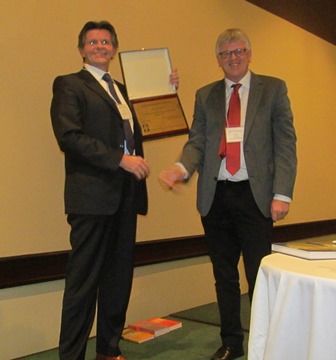
The jury of the Martin Beckmann Annual Award for 2012 consisting of Jouke van Dijk, Masahisa Fujita, Jean H. Paelinck and John M. Quigley selected for the Martin Beckmann Prize 2012 as clear winner Michael Fritsch and Holger Graffor the paper "How sub-national conditions affect regional innovation systems: The case of the two Germanys", published in Volume 90 Number 2 June 2011 as the best paper published in Papers in Regional Science in 2011. Motivation: The paper by Fritsch and Graf represents an innovative empirical research on regional innovation systems RIS). In comparison of two RIS in East Germany with two RSI in West Germany, with careful study of characteristics of the inventor networks within and surrounding the four RIS, the paper convincingly demonstrates that an nalysis of RIS should account for the (sub-)national economic conditions as well as for the region's position in its spatial environment.The paper will contribute significantly to the empirical and theoretical study of RIS in the future. |
2011 |
|
Trade costs in empirical New Economic Geography Maarten Bosker and Harry Garretsen Volume 89, Issue 3, August 2010
Akihiro Otsuka, Mika Goto and Toshiyuki Sueyoshi Volume 89, Issue 4, November 2010 |
2010 |
|
Thomas Scherngell and Michael J. Barber Volume 88, Issue 3, August 2009 |
2009 |
|
Good governance, trade and agglomeration Fabien Candau Volume 87, Issue 4, November 200 |
2008 |
|
J. Paul Elhorst and Annette S. Zeilstra Volume 86, Issue 4, November 2007 |
2007 |
|
Empirical growth models with spatial effects Bernie Fingleton and Enrique López-Bazo Volume 85, Issue 2, June 2006 |
1. Goal
The Award recognizes annually a regional science scholar or scholars who have demonstrated innovation and excellence in Regional Science research through the publication of a paper of outstanding merit in Papers in Regional Science.
2. The Award
2.1 The award is established to recognize and honour the outstanding career and contribution of Professor Martin Beckmann, an internationally recognized regional scientist and economist of outstanding merit, and who is a foundation fellow of the RSAI.
2.2 The Award is made annually for the best paper published in the Issues comprising an annual Volume of Papers in Regional Science.
2.3 Normally no more that one paper may be selected from an annual Volume of Papers in Regional Science, but in exceptional circumstances two (2) papers may be selected for the Award.
2.4 A paper selected for the Award must demonstrate innovation and excellent in research in regional science.
2.5 The Award carries a cash prize of 750 Euros.
3. Jury and Process for Recommending the Award
3.1 In the first quarter of each year, the three (3) Editors of Papers in Regional Science will convene in person and/or by email and /or by teleconference to review the papers published in the Volume of Papers in Regional Science in the previous year and choose a short list of up to five (5) papers which they deem as suitable for consideration for the Martin Beckmann Annual Award for the Best Paper in Papers in Regional Science.
3.2 The Editor-in Chief of Papers in Regional Science will then send the papers for appraisal to a Jury comprising the Editor-in Chief and three (3) Fellows of RSAI chosen by the Editor-in-Chief of Papers in Regional Science in consultation with the RSAI President.
3.3 The Jury will appraise and rank the papers during February that year, and in March a meeting of the Jury will be convened by the Editor-in Chief of papers in Regional Science (meeting in person and/or by email/teleconference) in March to select the paper or papers to receive the Award.
3.4 The Editor-in-Chief of Papers in Regional Science will inform the Executive Director of RSAI of the decision of the Jury, and the Executive Director of RSAI will inform the recipient(s) of the Award.
3.5 The Awardee(s) will be invited to attend one of the Supra-Regional (NARSC, ERSA, PRSCO) meetings or the RSAI World Congress to receive the Award.
The Hirotada Kohno Award
The Hirotada Kohno Award for Outstanding Service to the RSAI
Winners
2024
The committee (made up of Prof. Hans Westlund, RSAI President, Chair; Prof. Yoshiro Higano and Prof. Jean-Claude Thill, LRPC members; and Prof. Elizabeth Mack, RSAI Council member) in charge of selecting the recipient of the 2024 Hirotada Kohno award recommended Prof. André Torrre to be the recipient of the award. The motivation provided by the committee reads as follows : Professor André Torre has been active in the regional science community for almost four decades. He has been President (2019- 2023) and Vice-President (2014-2018) of the ERSA as well as a member of the ERSA Council (2009-2011) and the European Organizing Committee (2014-2019) and from 2009-2011, President of the French Speaking Section of ERSA (ASRDLF). He was Chair of the Local Organizing Committee for the 47th ERSA Congress, in 2007 in Paris (Local governance and sustainable development), and the main organizer of the 60th ERSA Congress, in 2021, online (Territorial Futures – Visions and scenarios for a resilient Europe). For a long period he has also served as a member of the RSAI Council. He also lent his leadership skills in various editorial capacities and in steering conferences, workshops, summer schools, and symposia in Europe and beyond. His long and dedicated work for regional science at the highest levels makes him a worthy recipient of the Kohno Award. |
|||||||
2023
The committee (made up of Hans Westlund, RSAI president; Yoshiro Higano and Eduardo Haddad, LRPC members; and Lily Kiminami, RSAI Council member) in charge of selecting the recipient of the 2023 Hirotada Kohno award recommended Prof. Daniela Constantin (RRSA) to be the recipient of the award. The motivation provided by the committee reads as follows : Dr Daniela Constantin, Professor of Regional and Urban Economics and Policy at the Bucharest University of Economic Studies, Romania, has served the Regional Science community since the early 1990s. She has been the main character behind the establishment and development of the Romanian Section of the RSAI, for which she has served as President for over twenty years. Also, she is the Scientific Director of the Romanian Journal of Regional Science (founded 2007). Daniela Constantin has been a member of the ERSA Council for more than 20 years, and has over the years had an innumerable number of commissions for ERSA. Currently, she is one of the editors of the “Papers in Regional Science” under Rosella Nicolini’s leadership as well as a member of the editorial boards of “Regional Science Policy and Practice” and “Region”. When the RSAI World Congress was held in Timisoara 2012, Professor Constantin served as Co-President of the Organising Committee. Thereafter, she has among other things been elected as Councilor-at-Large of the RSAI Council for two consecutive terms (2020-2022 and 2023-2025). Dr Daniela Constantin’s long-term, selfless involvement at different levels in the Regional Science community makes her a worthy recipient of the Kohno Award. |
|||||||
2022
The Jury (Eduardo Haddad, Chair, Lily Kiminami, Yoshiro Higano, and Geoffrey Hewings) would like to propose that the award for 2022 be made to Professor Jouke van Dijk (University of Groningen). In similar fashion to Professor Kohno, Van Dijk started his involvement with the Dutch section of RSAI during which time he served as co-organizer and member of the LOC of the ERSA meetings in Groningen in 1982, 1994 and 2017. For the decade of the 1990s, he served as Executive Secretary of the Dutch section with the responsibility for organizing two meetings each year. When Professor Juan Cuadrado Roura became President of ERSA in 1995, he proposed that van Dijk be appointed as Executive Secretary of ERSA and the European Organizing Committee (EOC) and he served in this position from 1996-2001. He remained a member of the EOC for all but three years between 1993 and 2019. From 2007-2019 he served as either ERSA or Papers in Regional Science representative on the RSAI Council. During this period, he also served as President of the European Regional Science Association (ERSA) from 2014-2018. In addition to his section/ERSA/RSAI duties, he also served in an editorial capacity. He was Editor-in-Chief of the Papers in Regional Science, 2007-2012; prior to this, he was the European Editor of Papers in Regional Science, 2005-2007. In 2012, he was appointed as one of the editors of the Springer Regional Science Series Advances in Spatial Science. In these positions, he has helped advance scholarship, especially of younger scholars, to print. In all of these positions, he worked tirelessly to enhance the quality and participation of sections in ERSA and he managed to enhance the stature of PiRS through his work in soliciting the best papers from conferences and generating a sense among authors that this was a journal of increasing prestige. He has also enhanced RSAI/ERSA’s visibility in the EU DG REGIO division by organizing a lecture series and University workshops at the annual European Week of Regions and Cities. He was also an initiator in promoting the participation of ERSA in the Masterclass for young scholars and University workshops at the annual European Week of Regions and Cities (EWRC, former Open Days) co-organized with EU DG REGIO in Brussels; each year, over 6.000 participants attended from regions all over Europe. In addition, Co-founder and co-organizer of the series of annual International Workshops on ‘Regional, Urban, and Spatial Economics’ (RUSE) in China. He has promoted regional sections within Europe as a member of the Editorial Board Review of Regional Research (Jahrbuch für Regionalwissenschaft) since 2013 and as a member of the International Scientific Board of Investigaciones Regionales, the review of the Spanish Association, since 2014. Further, he has served on juries for prizes, organized congresses, round tables, and well as being an active participant at congresses and meetings, in numerous European sections (French Speaking., German Speaking, Greek, Italian, Spanish, Hungarian, and in the Nordic countries). These are contributions that are often overlooked but turn out to be critical in creating a sense of community among regional scientists. Over three decades, Professor van Dijk has demonstrated a continuing, sustained commitment to enhancing the organization of regional science in his various leadership capacities. ERSA is now one of the strongest of the multinational organizations within RSAI; prior to COVID, attendance of 800-1,000 at the annual meeting was not unusual. Through his leadership and dedication, Professor van Dijk has made a difference that has promoted and enhanced Regional Science and the Jury feels that he would be a most deserving recipient of the Hirotada Kohno Award for Outstanding Service to Regional Science. |
|||||||
2021
|
2020
|
||||||
2018
Congratulations to Roberta Capello who is the winner of the 2018 Kohno Prize. Roberta Capello is Full professor of Regional Economics at Politecnico of Milan, Faculty of Building Engineering. Congratulations! |
2017
|
||||||
2016
|
2014
Congratulations to Yoshiro Higano who is the winner of the 2014 Kohno Prize. Higano is Professor of Environmental Policy, Doctoral Program in Sustainable Environmental Studies, Graduate School of Life and Environmental Sciences, University of Tsukuba. Japan. He specializes in Comprehensive Environmental Evaluation, Environmental Remediation Technology Assessment and Environmental Policy. Congratulations! |
||||||
2013
Congratulations to Robert Stimson who is the winner of the 2013 Kohno Prize. Bob Stimson is a quantitative human geographer and regional scientist. He has been teaching and conducting research in universities since 1965. He retired from the University of Queensland in January 2011. Congratulations! |
2012
Congratulations to Jean-Claude Thill who is the winner of the 2012 Kohno Prize. Jean-Claude Thill is currently the Knight Distinguished Professor of Public Policy in the Department of Geography and Earth Sciences at UNC Charlotte, and he has held past positions at the University at Buffalo, the State University of New York and the University of Georgia. Congratulations! |
||||||
2011
Congratulations to Graham Clarke who is the winner of the 2011 Kohno Prize. Graham Clarke is Professor in School of Geography, University of Leeds since 2004. Congratulations! |
2010
The third winner of the prestigious Hirotado Kohno award, for outstanding service to the regional science community, was announced at the ERSA conference in Sweden. The award of the 2010 Kohno Prize went to Gunther Maier of WU Vienna University of Economics and Business. |
||||||
2009
Congratulations to Lay Gibson who is the winner of the 2009 Kohno Prize. He is based at the University of Arizona. Congratulations!
|
2007
RSAI is delighted to announce the winner of the 1st Kohno Prize, Kieran Donaghy of Cornell University for his many contributions to RSAI, PRSCO and the Western Regional Science Association. His principal contribution came as Executive Director of RSAI (1997-2002). At the time he was at the University of Illinois at Urbana-Champaign. Congratulations Kieran! |
||||||
1. Goal
The Award honours and thanks a member of the RSAI who has provided long and outstanding service to the development and organization of Regional Science and to the development and management of RSAI at the International and/or Supra-Regional, including an outstanding contribution to the development of Regional Science at the Local Section level.
2. The Award
2.1 The Award is established to recognize and honour the outstanding service contribution Professor Hirotada Kohno has made to the Regional Science community, and especially his role in the development of PRSCO and the Japan Section of RSAI.
2.2 The Award recognizes outstanding service to the RSAI has incorporated service extending beyond the local level and which incorporates service of an international nature.
2.3 No more than two (2) Awards may be given in any one calendar year.
2.4 Awards will be presented at one of the three RSAI super-regional meetings/conferences (NARSC, ERSA, PRSCO) or at the RSAI World Congress.
3. Nomination Process
3.1 In the last quarter of each calendar year, the RSAI Executive Director will contact the RSAI Council, the Councils/Boards of NARSC, ERSA and PRSCO, and the Councils/Boards of all affiliated RSAI Sections, calling for written nominations of potential candidates for the Hirotada Kohno Award for Outstanding Service to the RSAI.
3.2 A nomination of a candidate for consideration for the Award must be made in writing by the President and/or Secretary and/or Executive Officer of an official body within RSAI - that is, the RSAI itself; NARSC, ERSA, PRSCO; or a Section of RSAI.
3.3 A written nomination of a candidate for consideration for the Award must include a detailed statement of the nature of the service contribution a candidate has made to RSAI. It must explain how and why that service contribution of the nominee meets the goal of the Award. It should contain testimonials from at least three persons who have held high office and/or currently hold high office in the organization within RSAI that is making the nomination. It must be demonstrated that the long and outstanding service of the nominee extends beyond the local Section of RSAI in the case where a Section of RSAI is initiating the nomination.
3.4 Nominations for the Award are to close by the end of January the following calendar year.
4. Jury and Process for Recommending Awardees
4.1 In the last quarter of each year, a four person Jury will be named by the RSAI Council to consider nominations for the H. Kohno Award for Outstanding Service to the RSAI.
4.2 The Jury shall comprise the current RSAI President, one current member of the RSAI Council, and two Past Presidents of the RSAI.
4.3 The Jury will convene (in person and/or by email/teleconference) after January in the following calendar year.
4.4 The Jury will evaluate the nominations received and passed onto it by the RSAI Executive Director. The Jury will submit its recommendation(s) to the RSAI Executive Director by the end of March in that year.
4.5 The recommendation will then be communicated by the RSAI Executive Director to the members of the RSAI Council, with Members of the Council having two weeks in which to inform the Executive Director of any dissent they may have regarding the recommendation.
4.6 If more than one-third of Council members expresses their dissent regarding a recommendation for the Award, then the recommendation will lapse.
4.7 The President and/or the Executive Director of RSAI shall inform the person(s) recommended for the Award before the end of June in that calendar year. The awardee(s) will be invited to attend one of the Supra-Regional (NARSC, ERSA, PRSCO) meetings or the RSAI World Congress to receive the Award.
About Us
The Regional Science Association International (RSAI), founded in 1954, is an international community of scholars interested in the regional impacts of national or global processes of economic and social change.



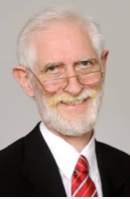

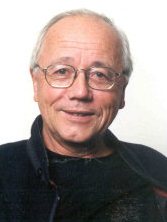

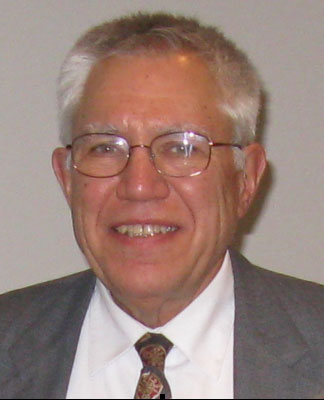

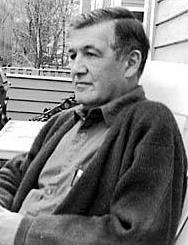




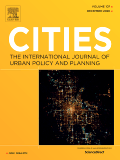
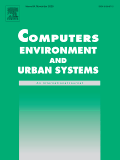
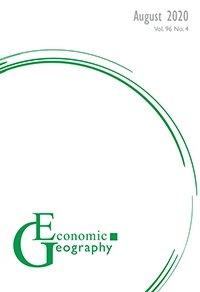
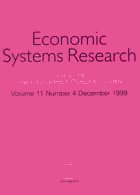
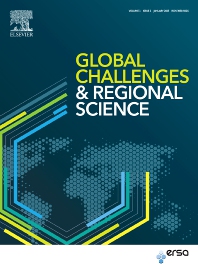
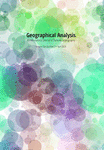

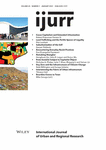
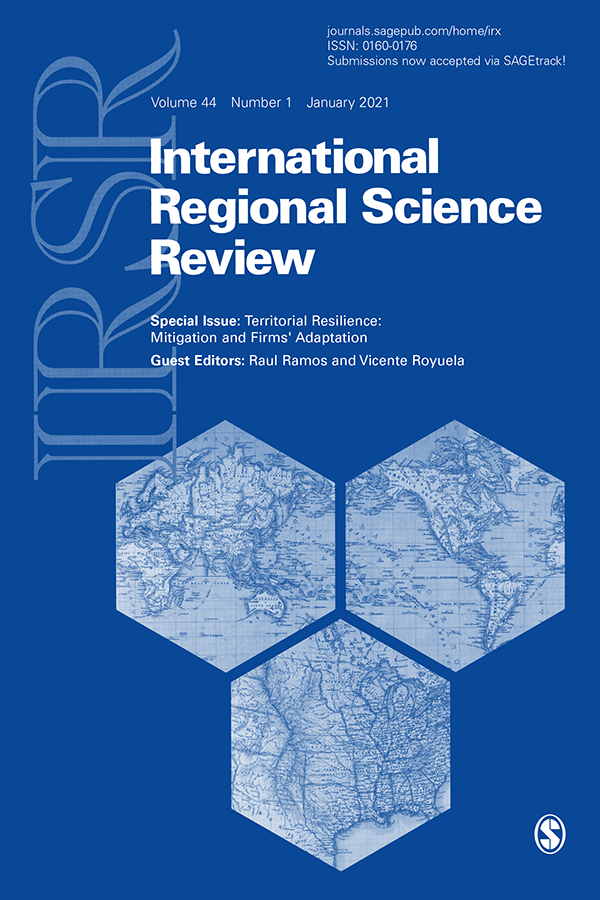
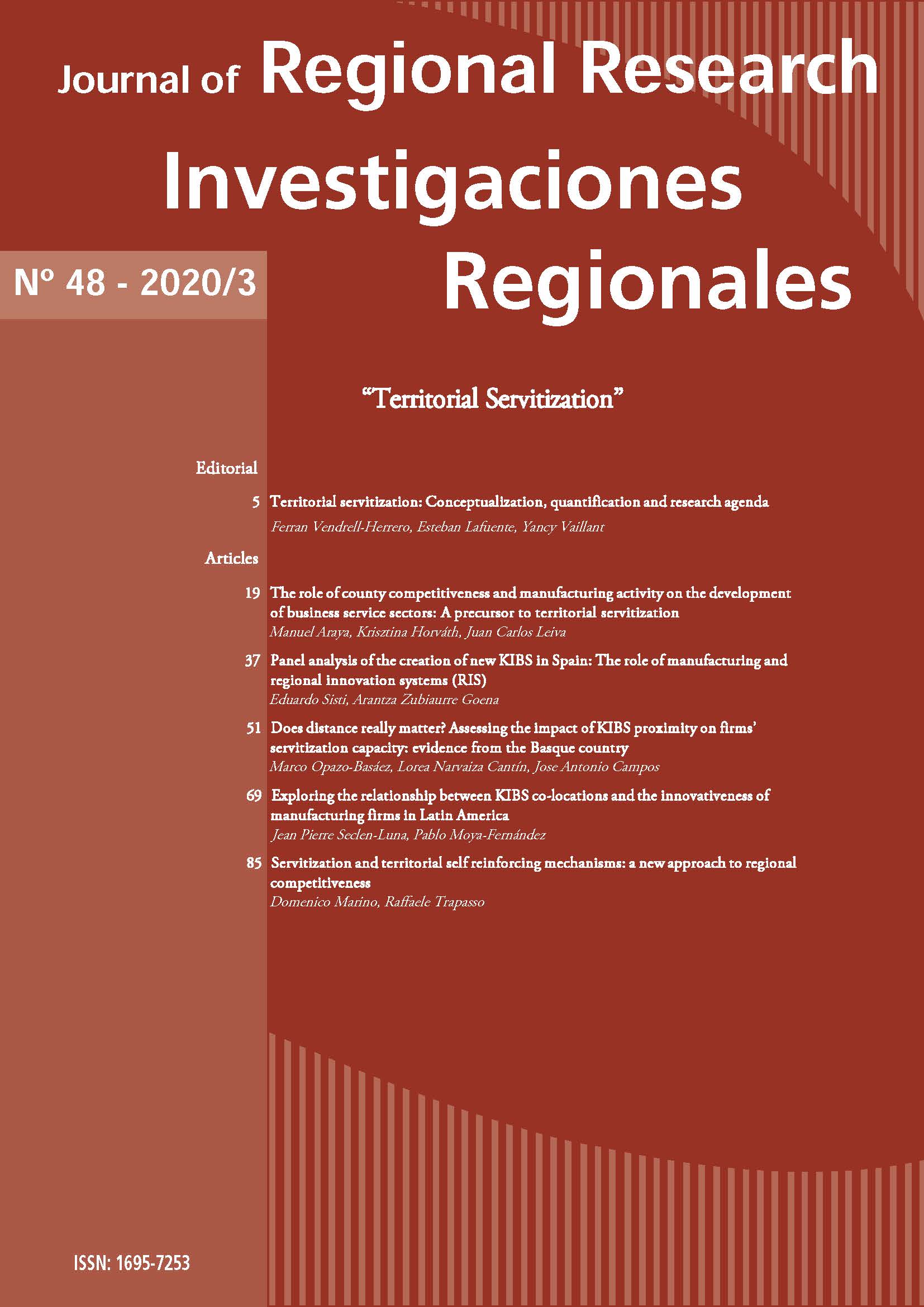
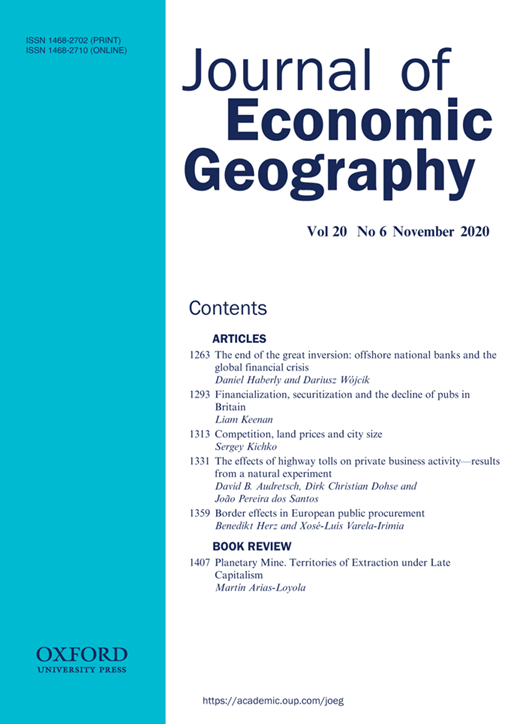
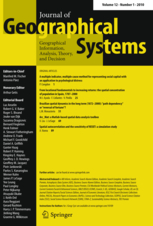
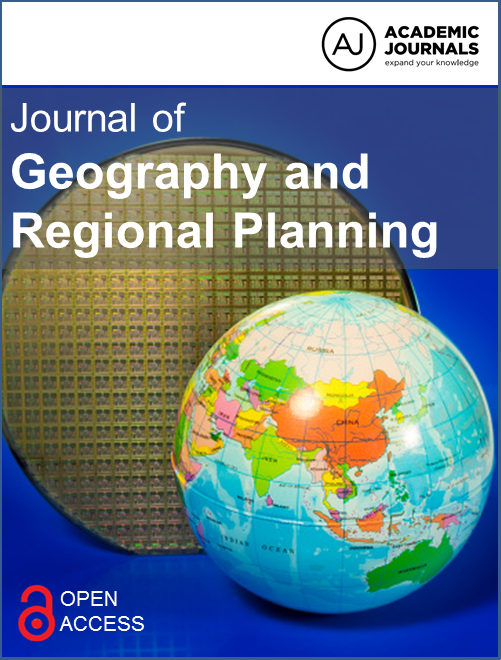
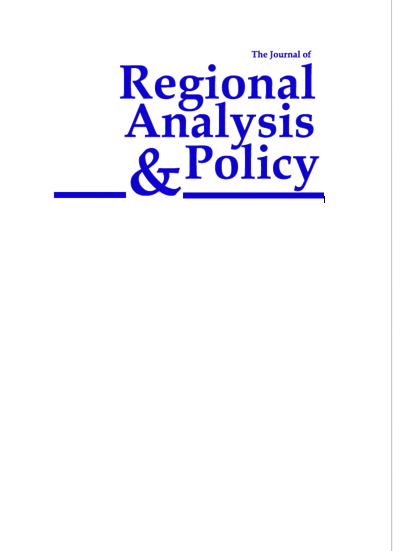
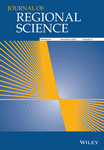

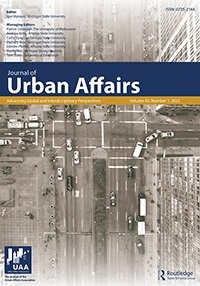
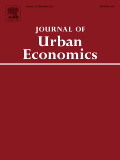
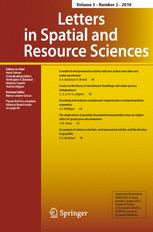
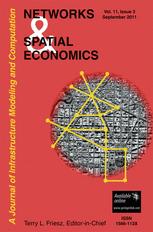
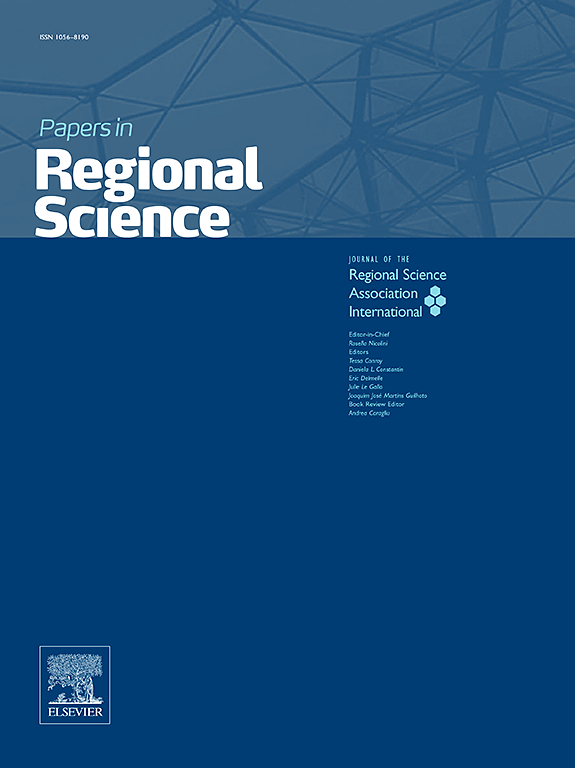
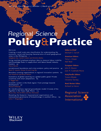
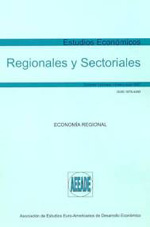
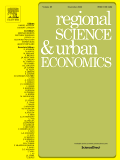
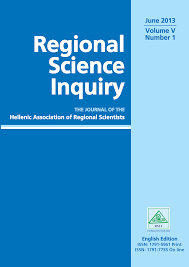
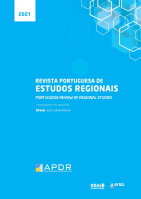
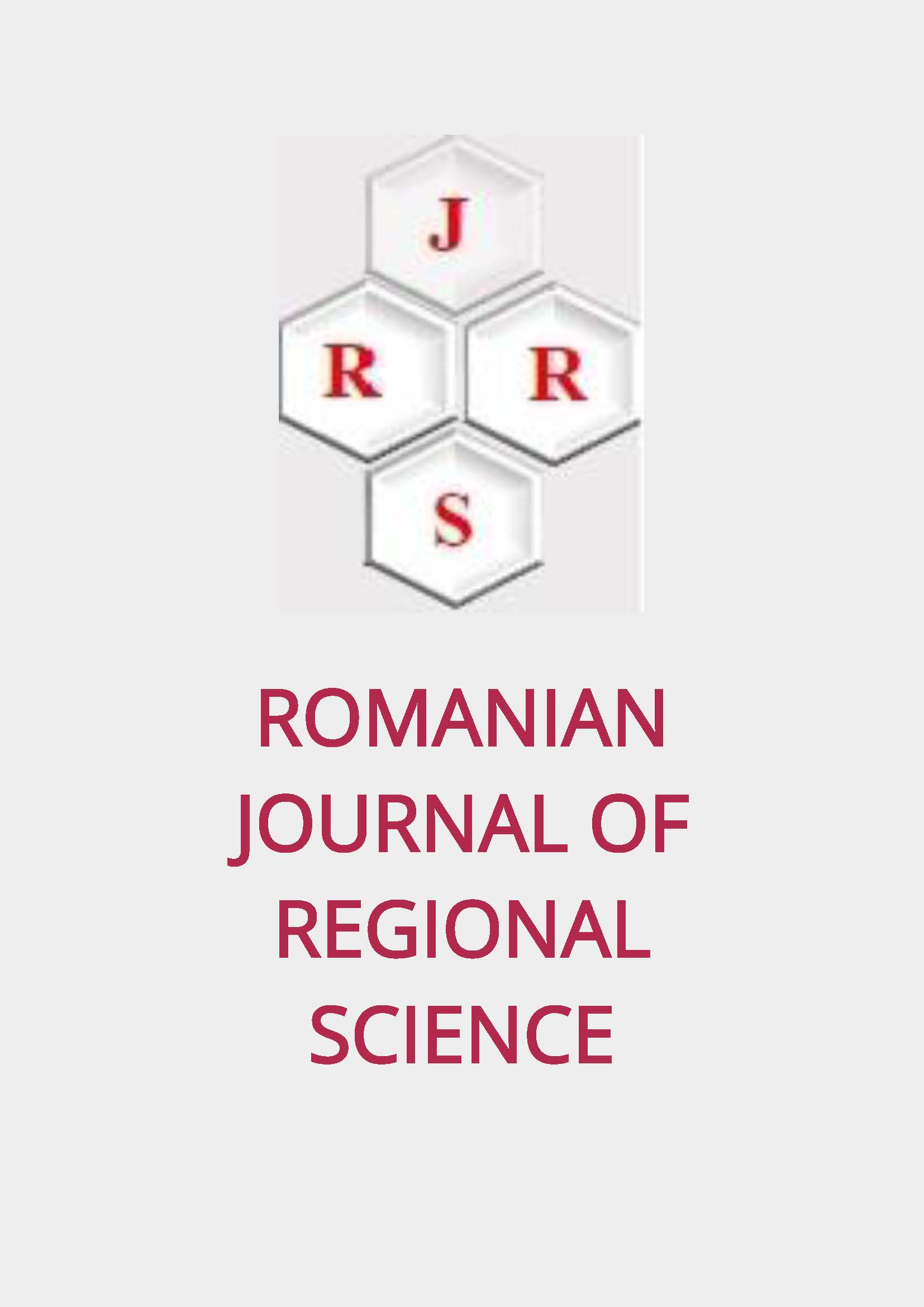

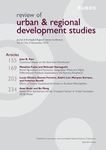
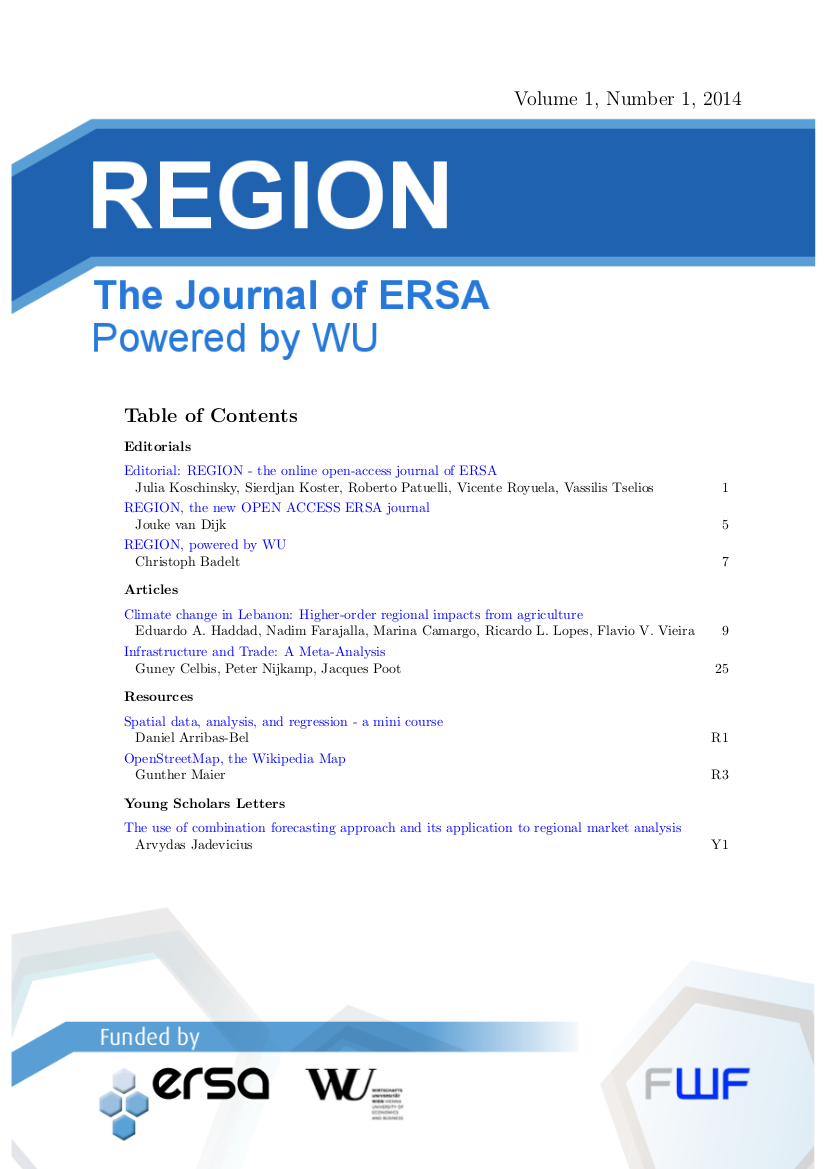
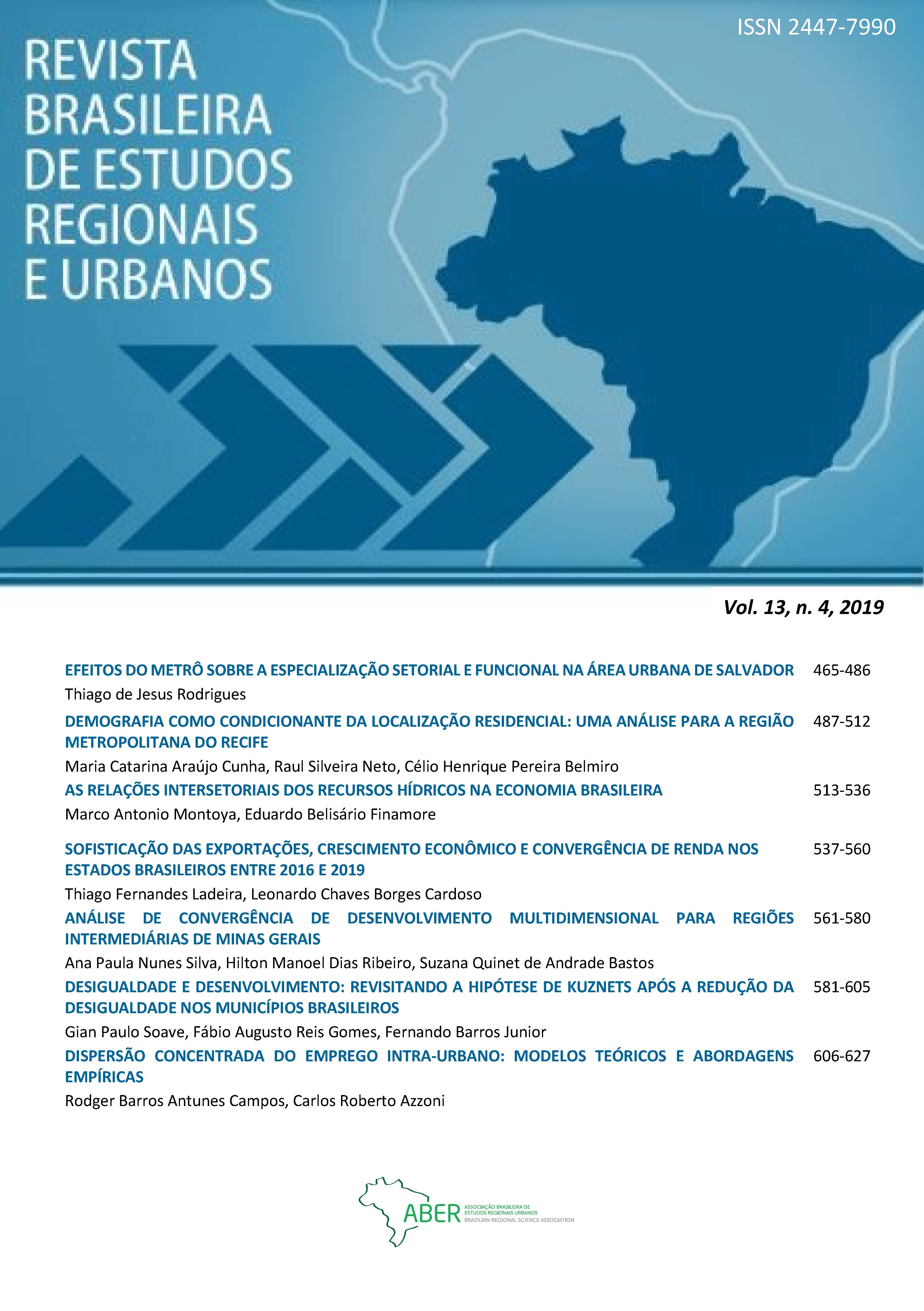
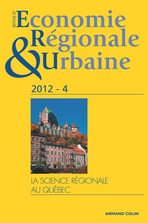
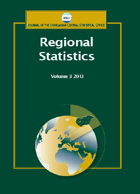
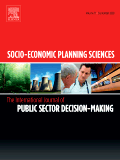

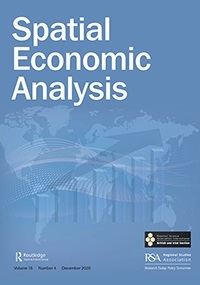
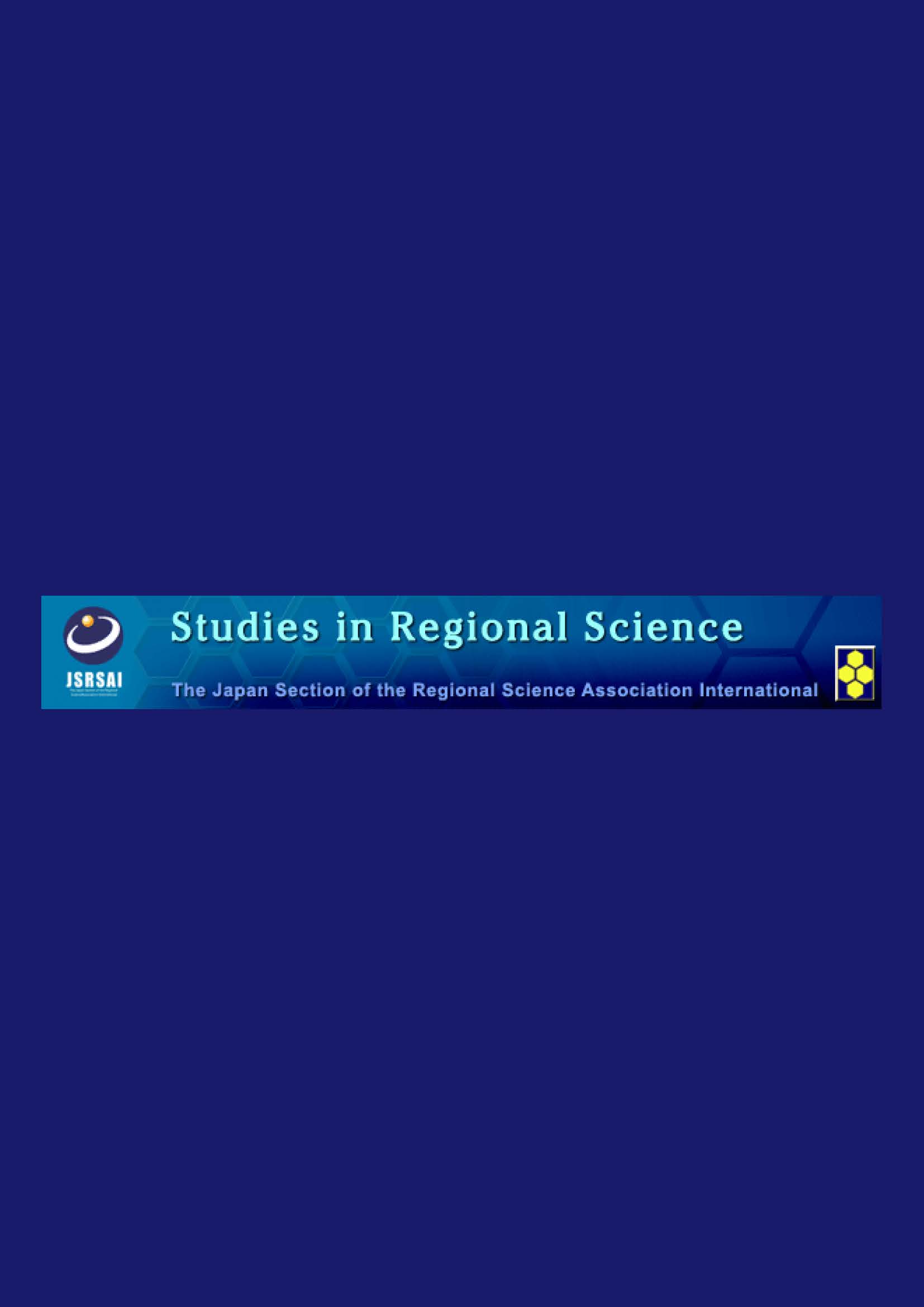


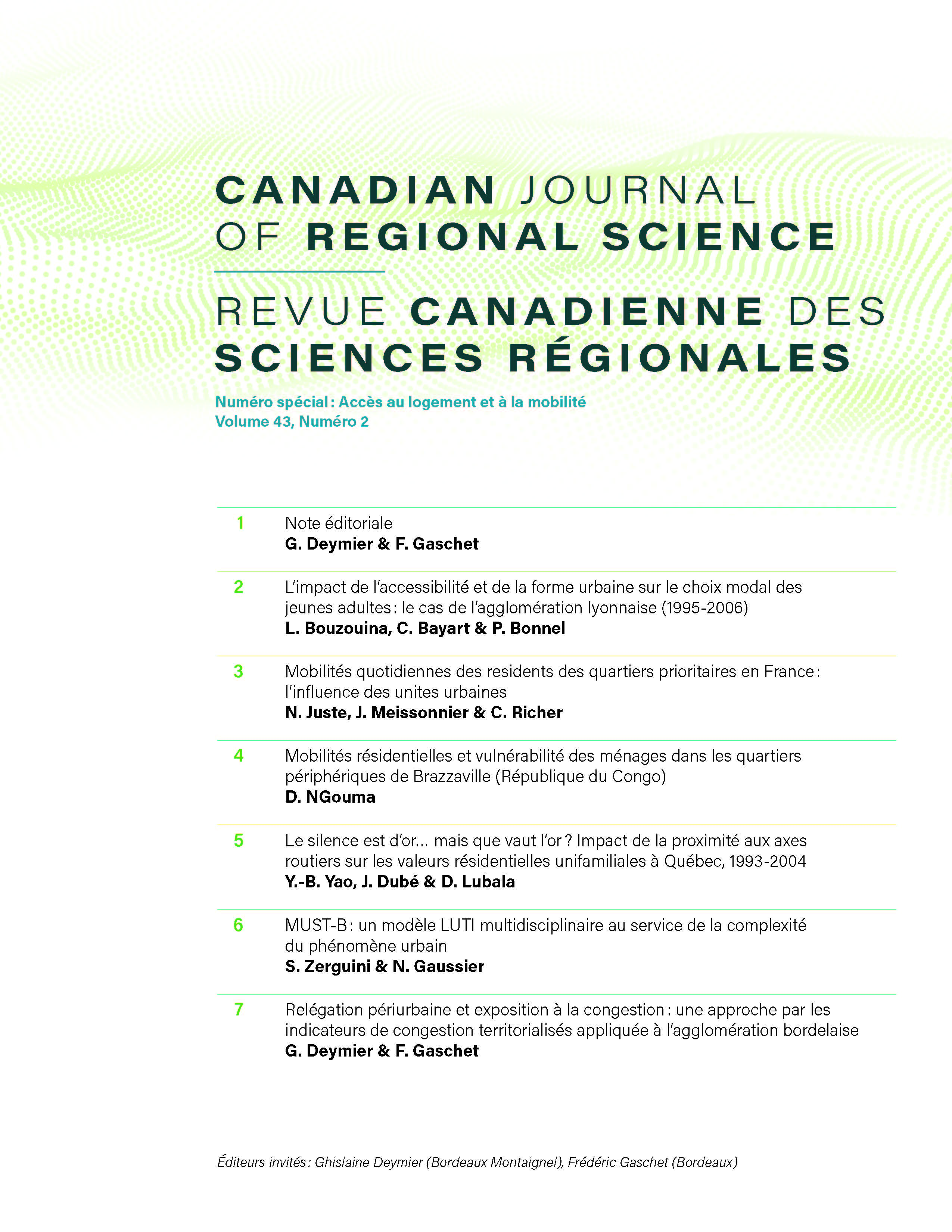
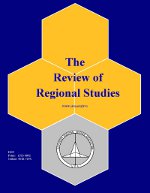
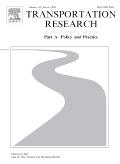
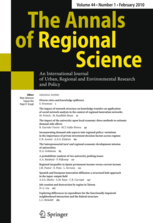
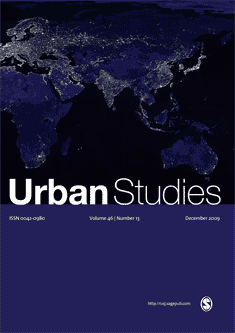


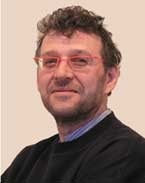
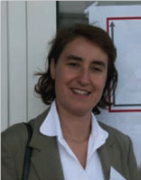

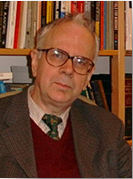




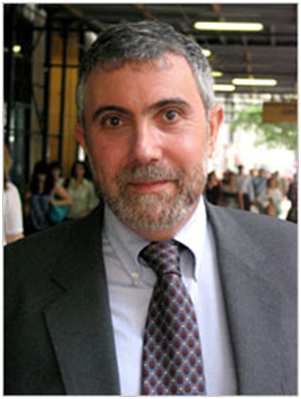
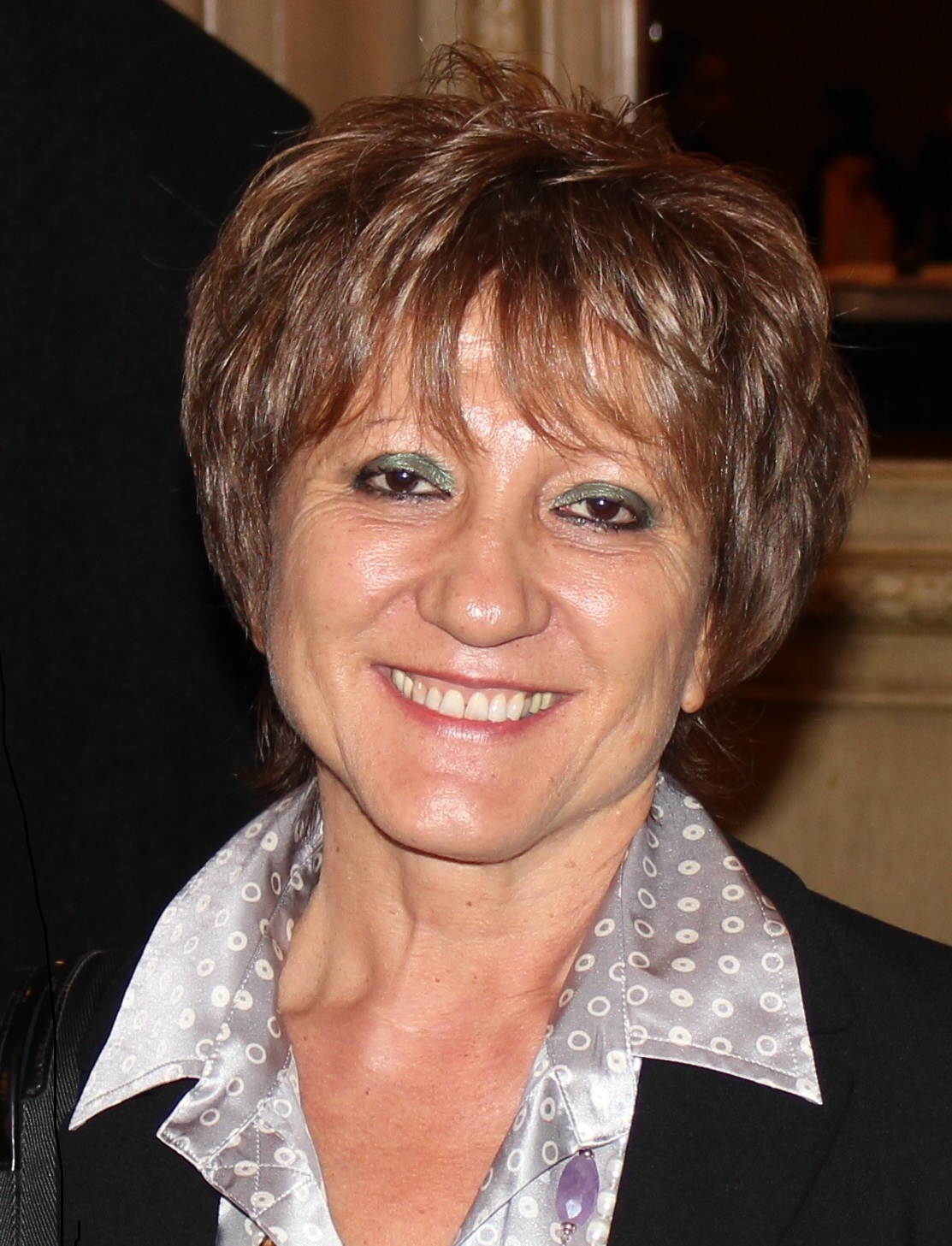

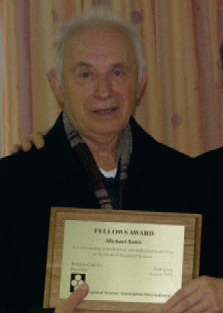




 Felix Pot
Felix Pot Dr
Dr  The selection committee for the RSAI Best Dissertation award has unanimously agreed to declare the PhD thesis of
The selection committee for the RSAI Best Dissertation award has unanimously agreed to declare the PhD thesis of 
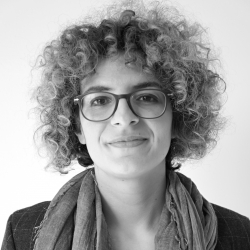 In 2020 the winner of the RSAI dissertation prize was
In 2020 the winner of the RSAI dissertation prize was  In 2019 the winner of the RSAI dissertation prize was
In 2019 the winner of the RSAI dissertation prize was  In 2018 the winner of the RSAI dissertation prize was
In 2018 the winner of the RSAI dissertation prize was 
 In 2016 the winner of the RSAI dissertation prize was
In 2016 the winner of the RSAI dissertation prize was 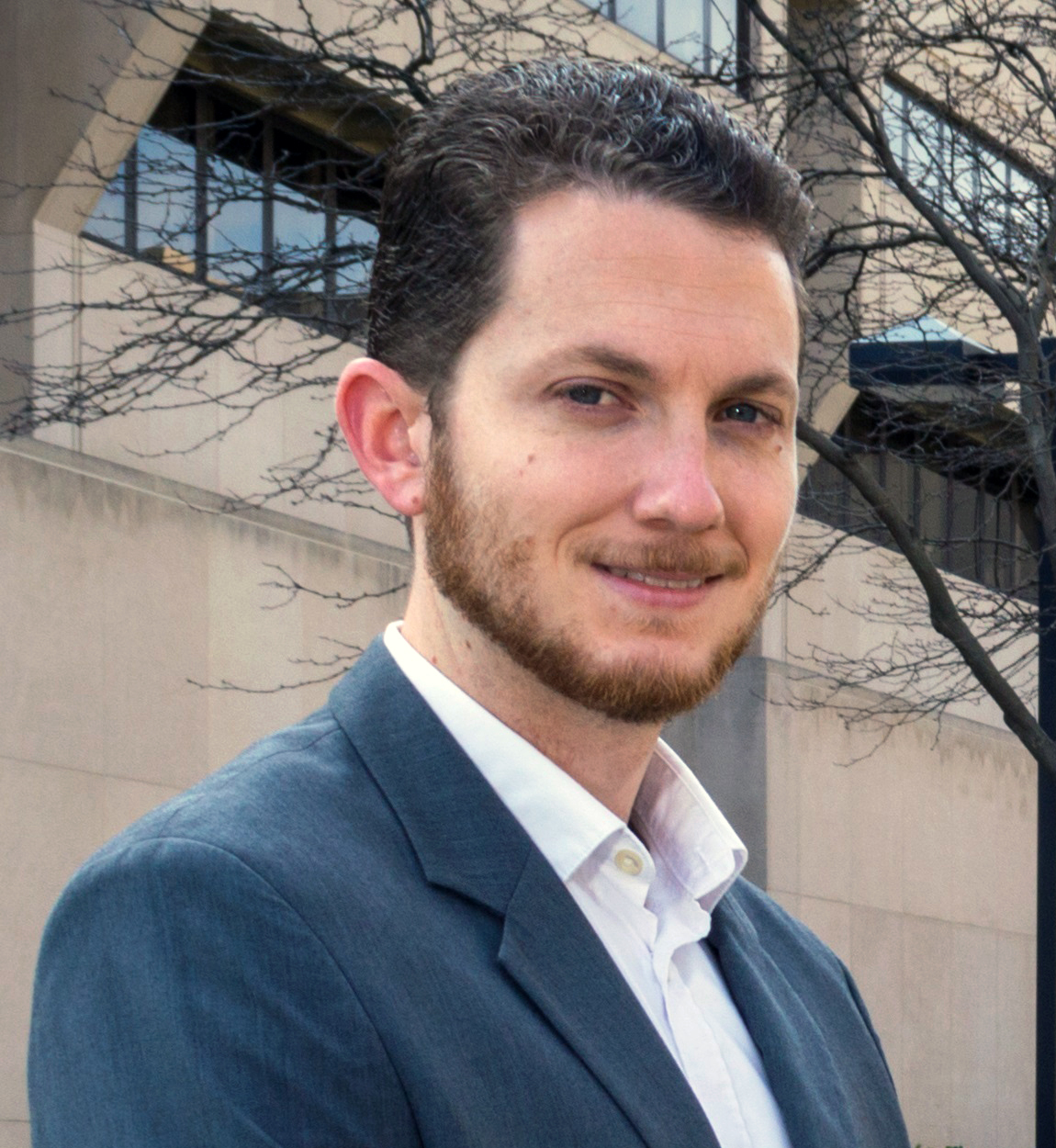 In 2015 the winner of the RSAI dissertation prize was
In 2015 the winner of the RSAI dissertation prize was 
 In 2012 the winner of the RSAI dissertation prize was
In 2012 the winner of the RSAI dissertation prize was  In 2011 the winner of the RSAI dissertation prize was
In 2011 the winner of the RSAI dissertation prize was  In 2010 the winner of the RSAI dissertation prize was
In 2010 the winner of the RSAI dissertation prize was  In 2008 the winner of the RSAI dissertation prize was
In 2008 the winner of the RSAI dissertation prize was  The RSAI presented its annual Dissertation Competition award at the 2006 North American meetings in Toronto to Dr.
The RSAI presented its annual Dissertation Competition award at the 2006 North American meetings in Toronto to Dr. 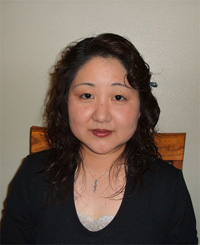 The RSAI presented its annual Dissertation Competition award at the 2005 North American meetings in Las Vegas to Dr.
The RSAI presented its annual Dissertation Competition award at the 2005 North American meetings in Las Vegas to Dr. 

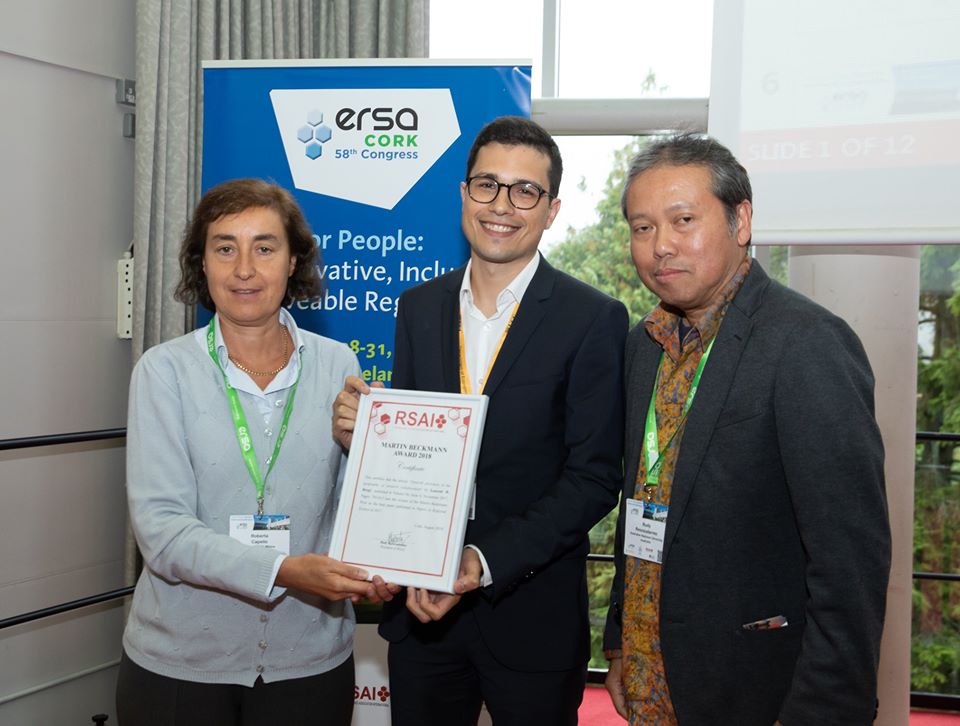 The jury consisting of Janice Madden, Carlos Azzoni and Erik Verhoef chose the article "
The jury consisting of Janice Madden, Carlos Azzoni and Erik Verhoef chose the article "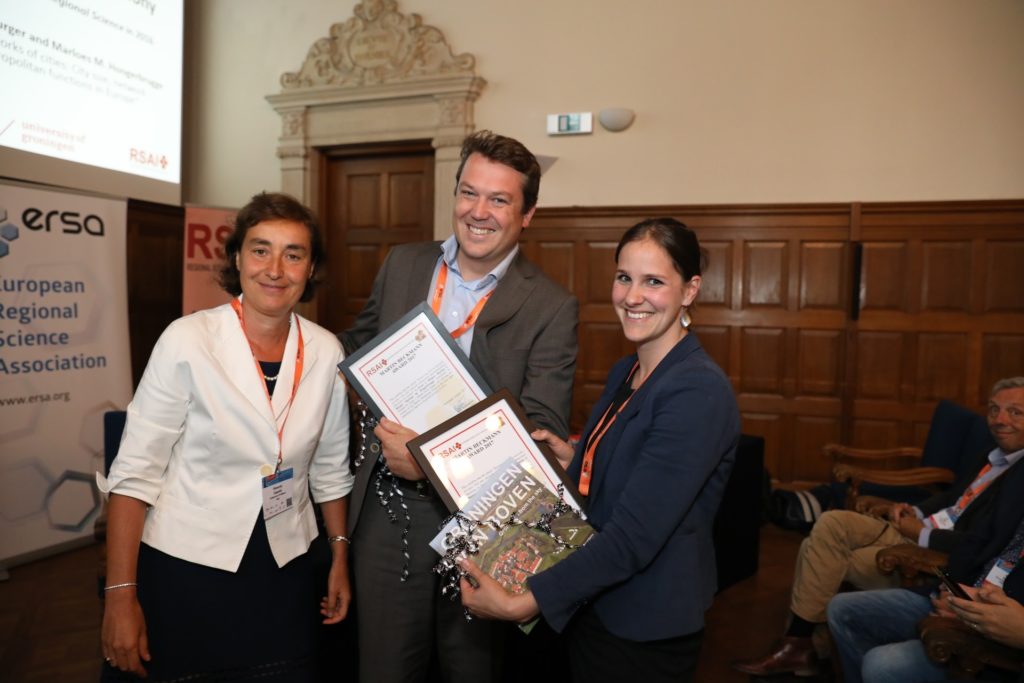 The jury consisting of Janice Madden, Carlos Azzoni and Erik Verhoef chose the article "
The jury consisting of Janice Madden, Carlos Azzoni and Erik Verhoef chose the article "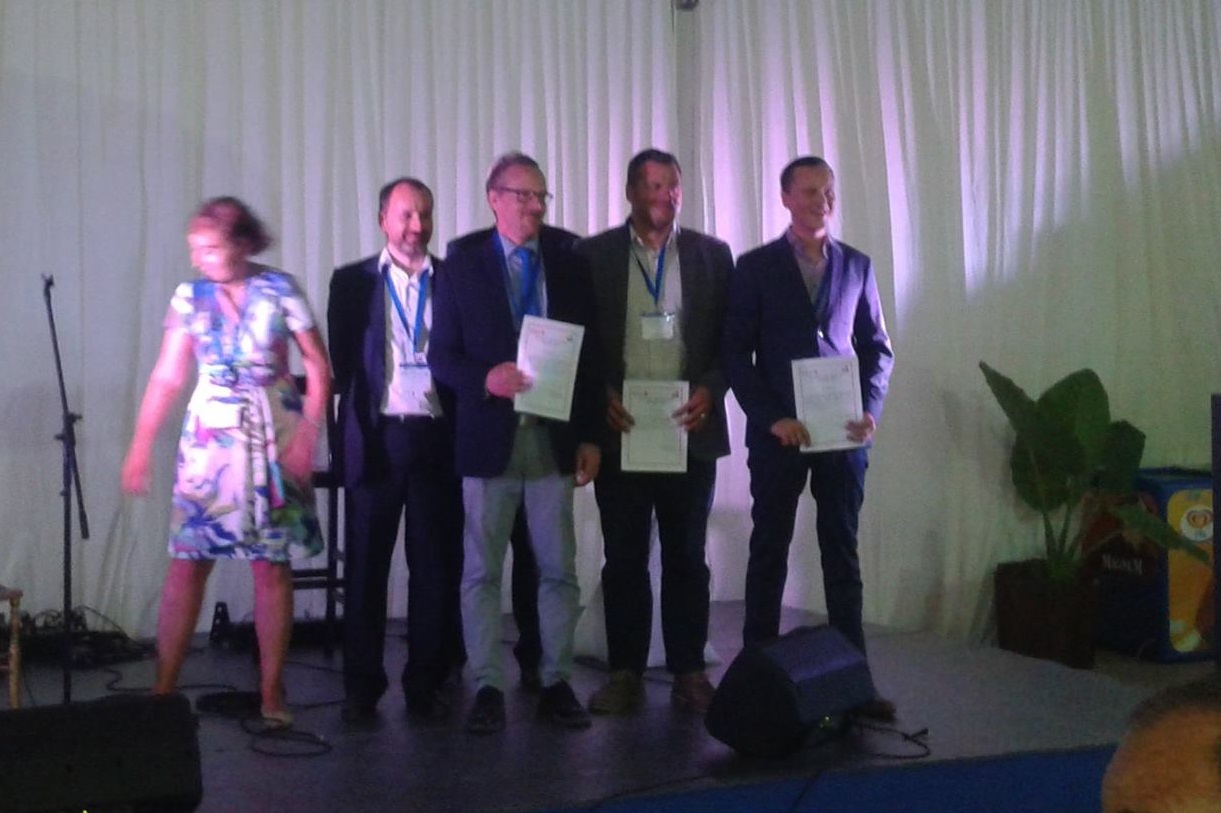 The jury consisting of Antoine Bailly, Masahisa Fujita, Roberta Capello and Erik Verhoef chose the article "
The jury consisting of Antoine Bailly, Masahisa Fujita, Roberta Capello and Erik Verhoef chose the article " André Torre awarded the Kohno prize!
André Torre awarded the Kohno prize! Daniela Constantin awarded the Kohno prize!
Daniela Constantin awarded the Kohno prize! Congratulations to
Congratulations to  Prof.
Prof.  Congratulations to
Congratulations to 